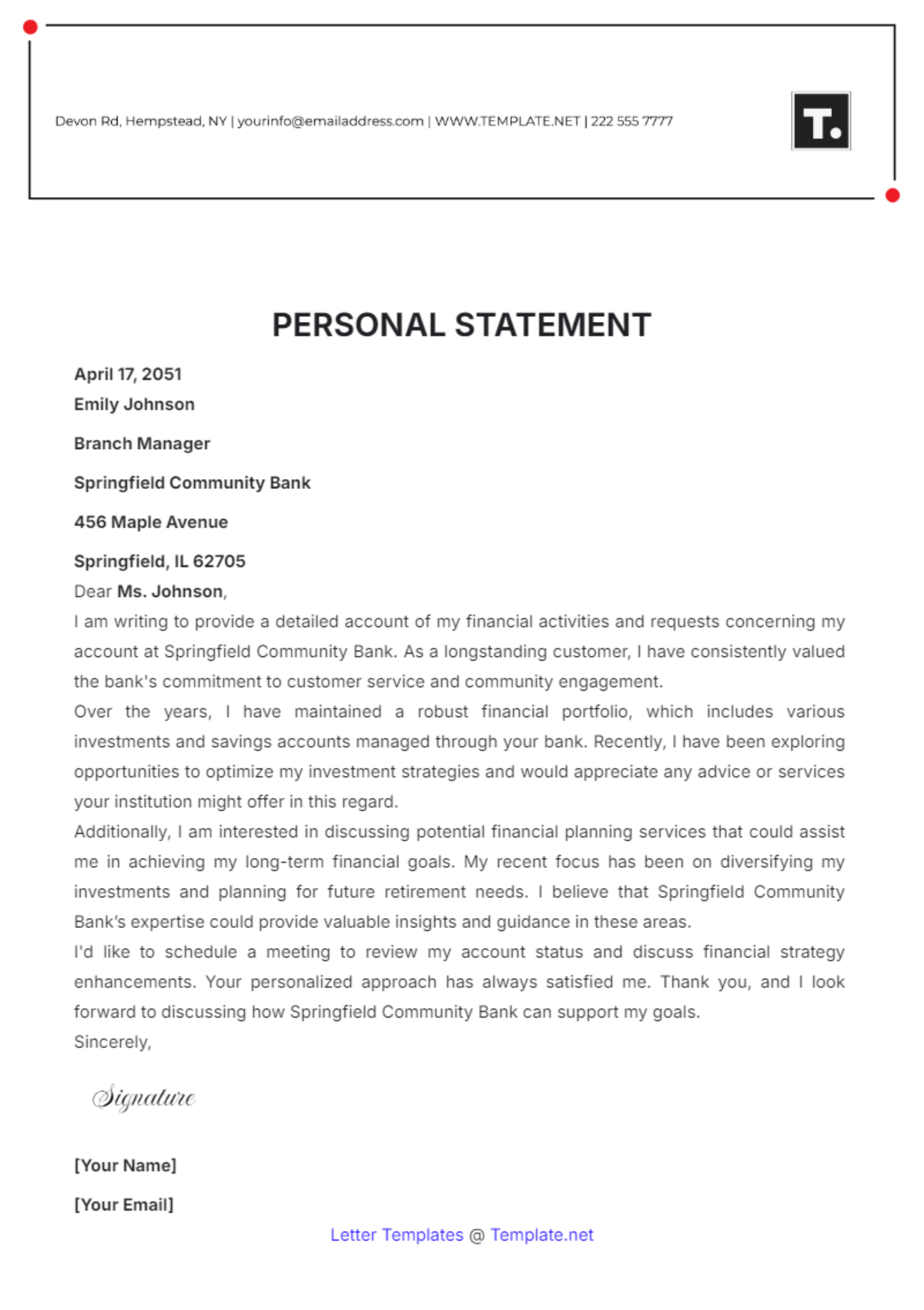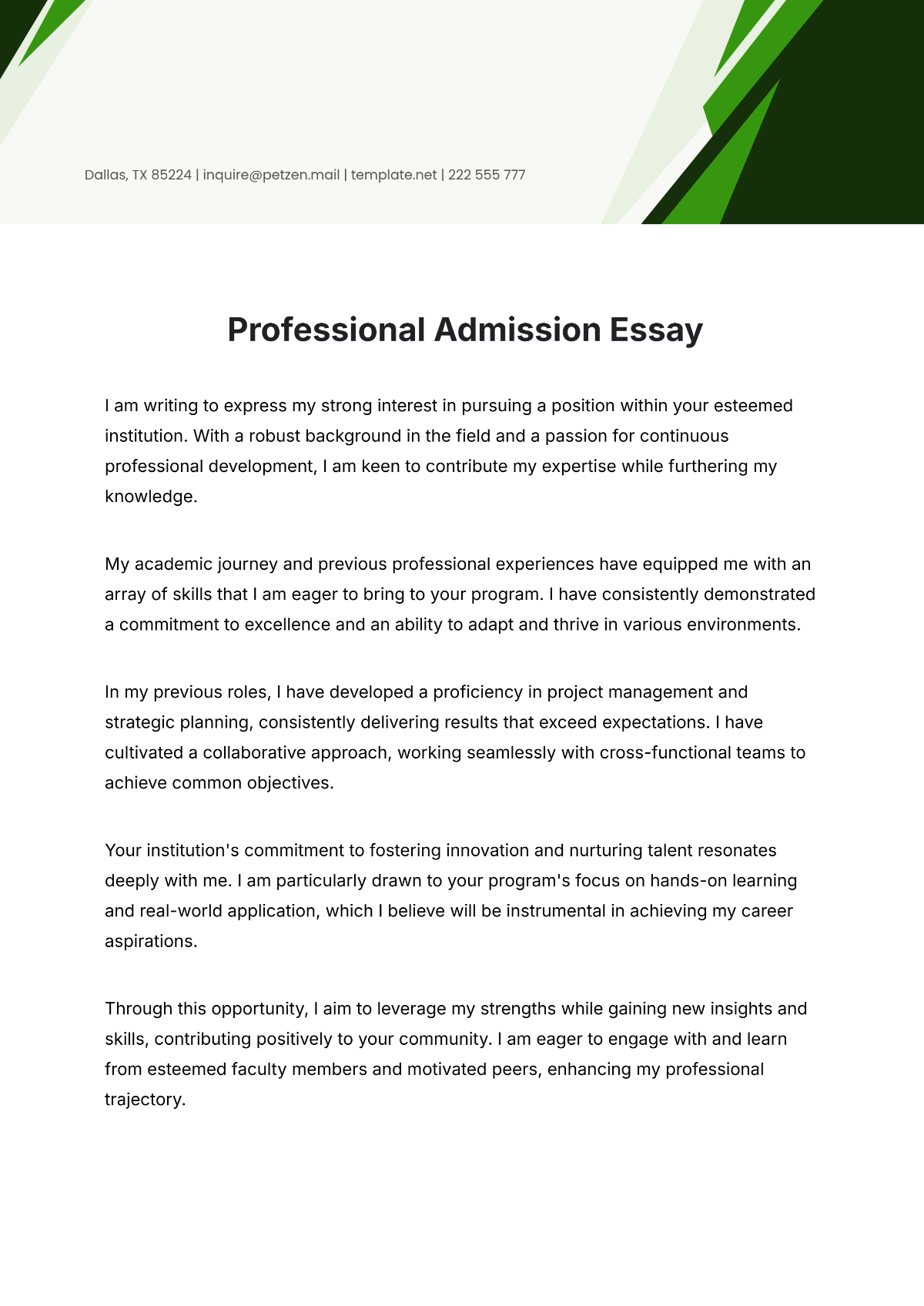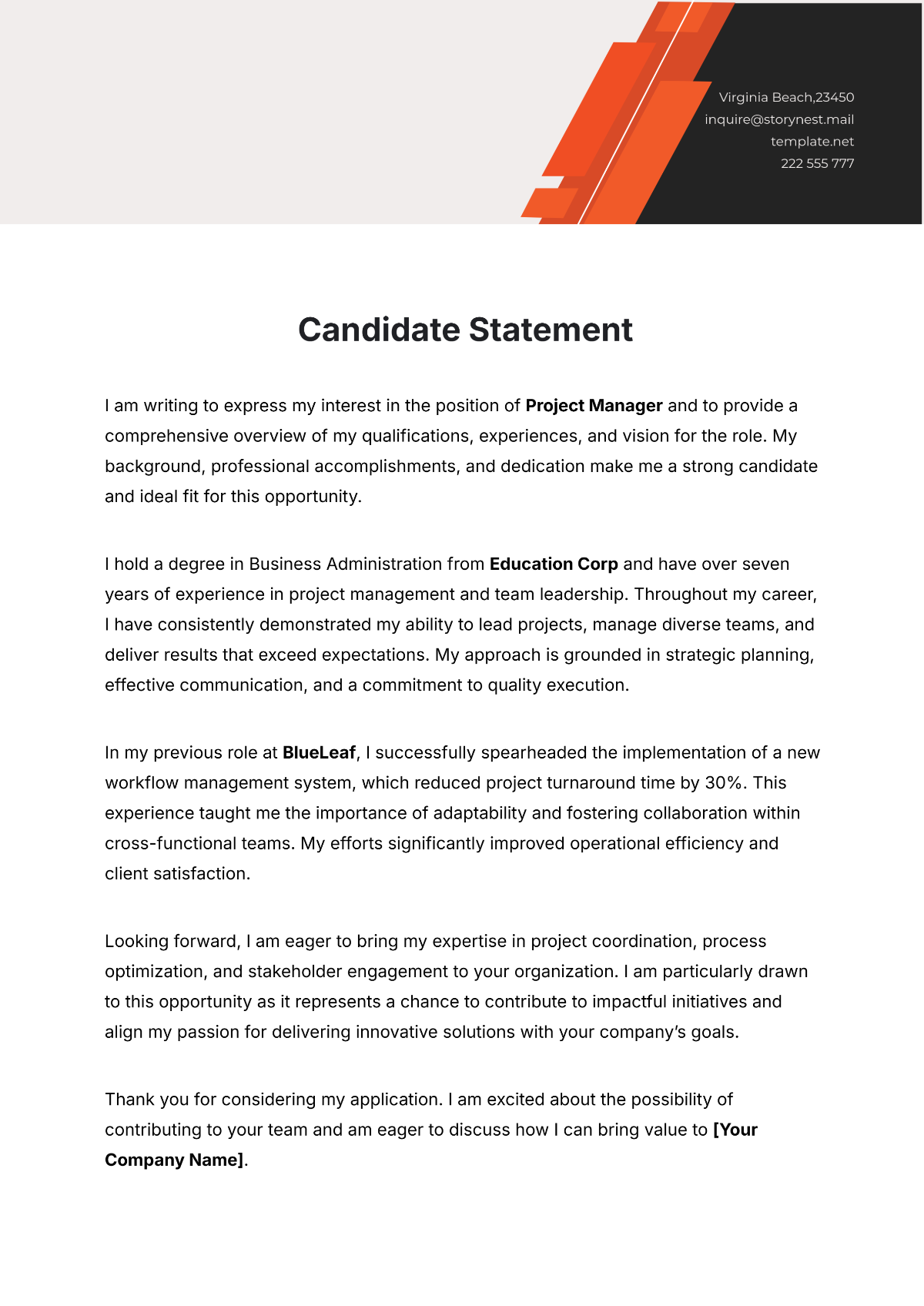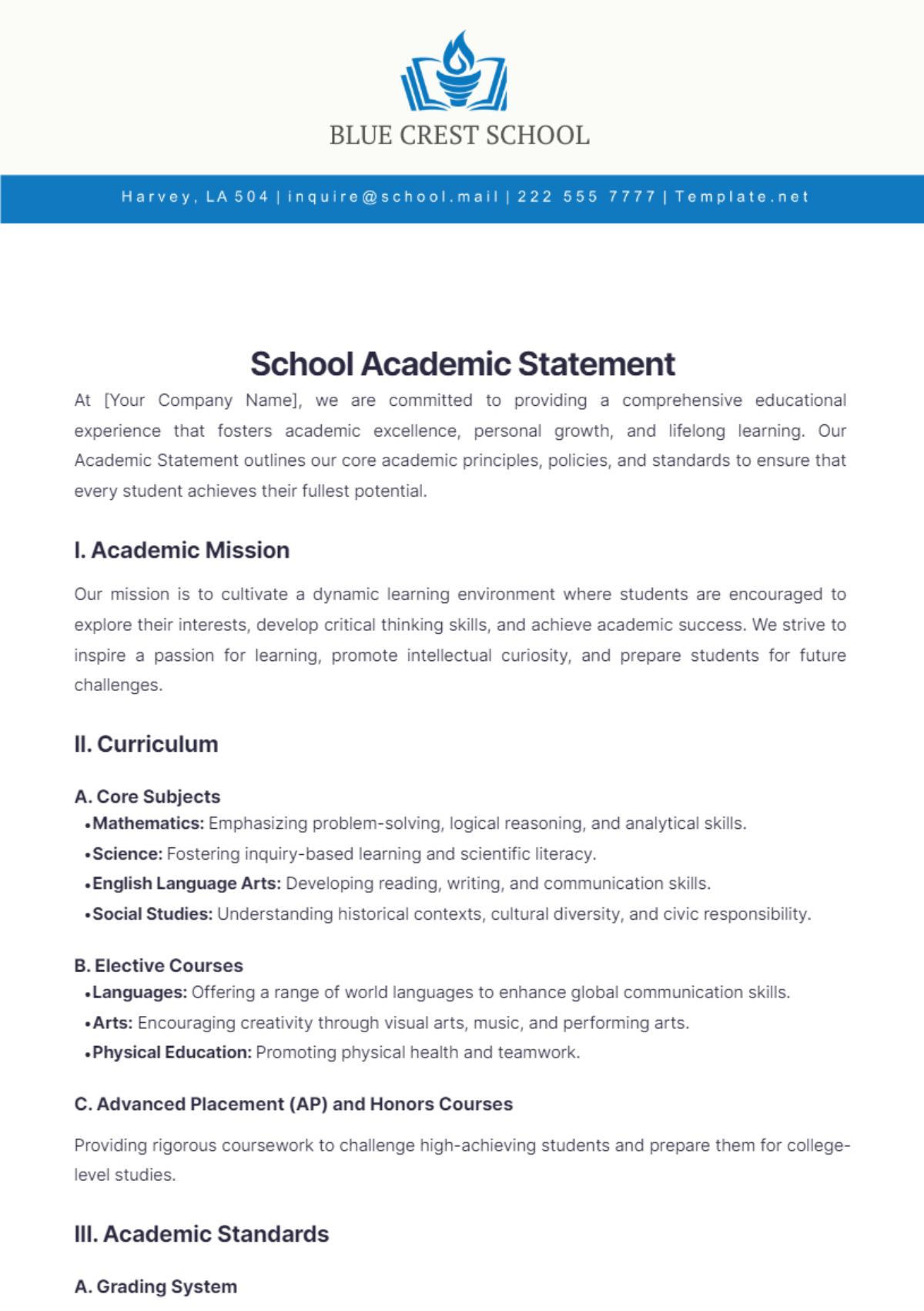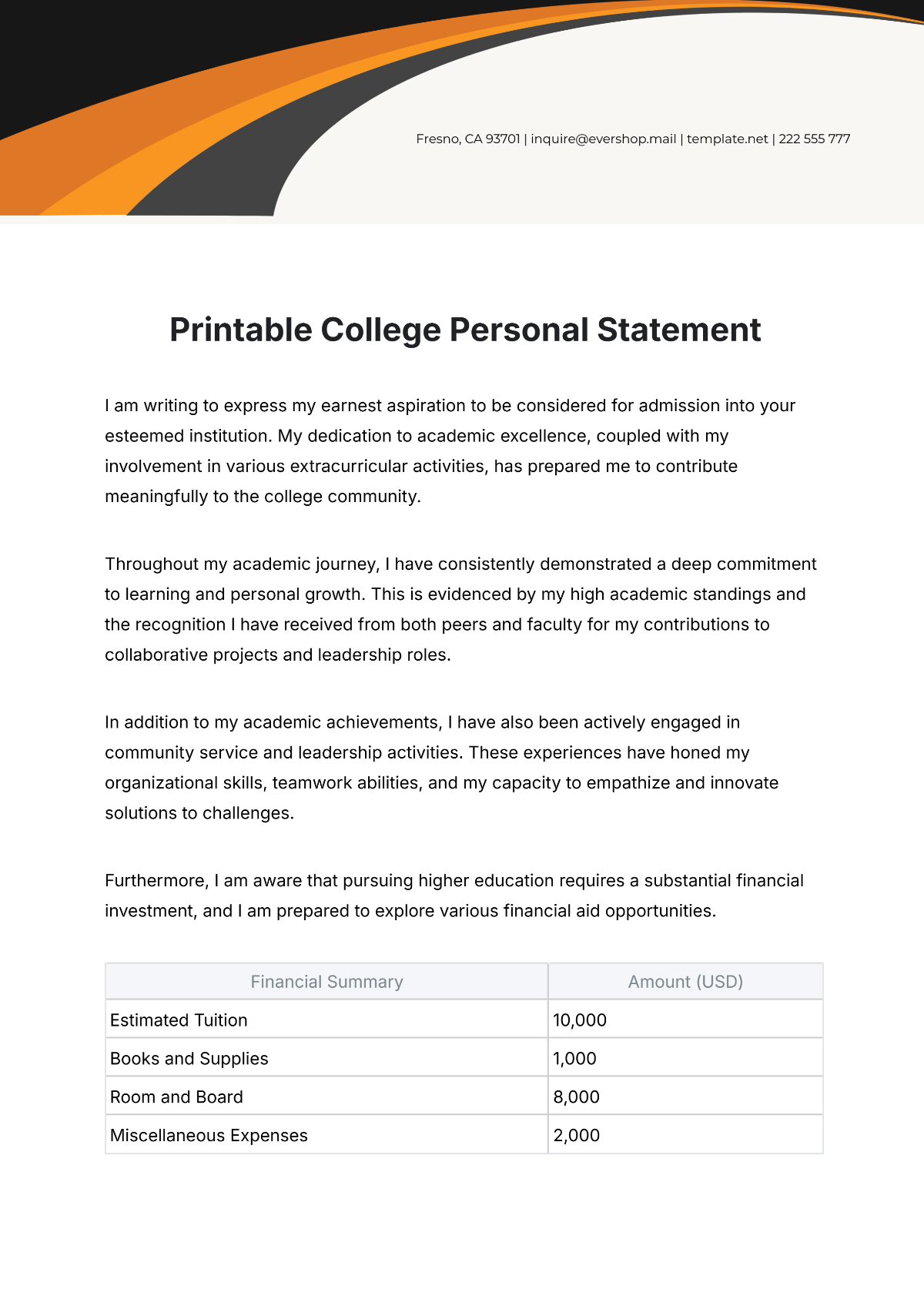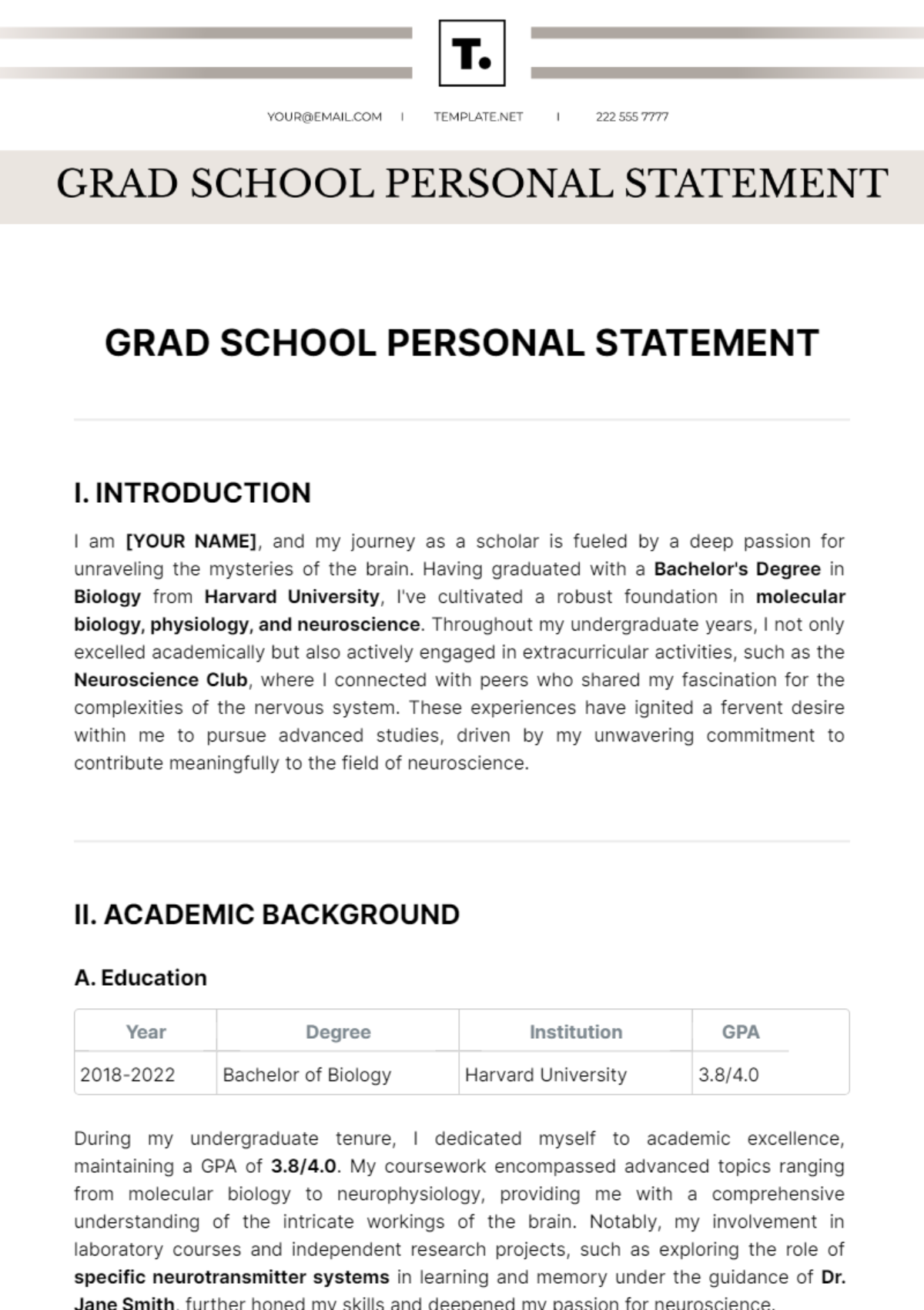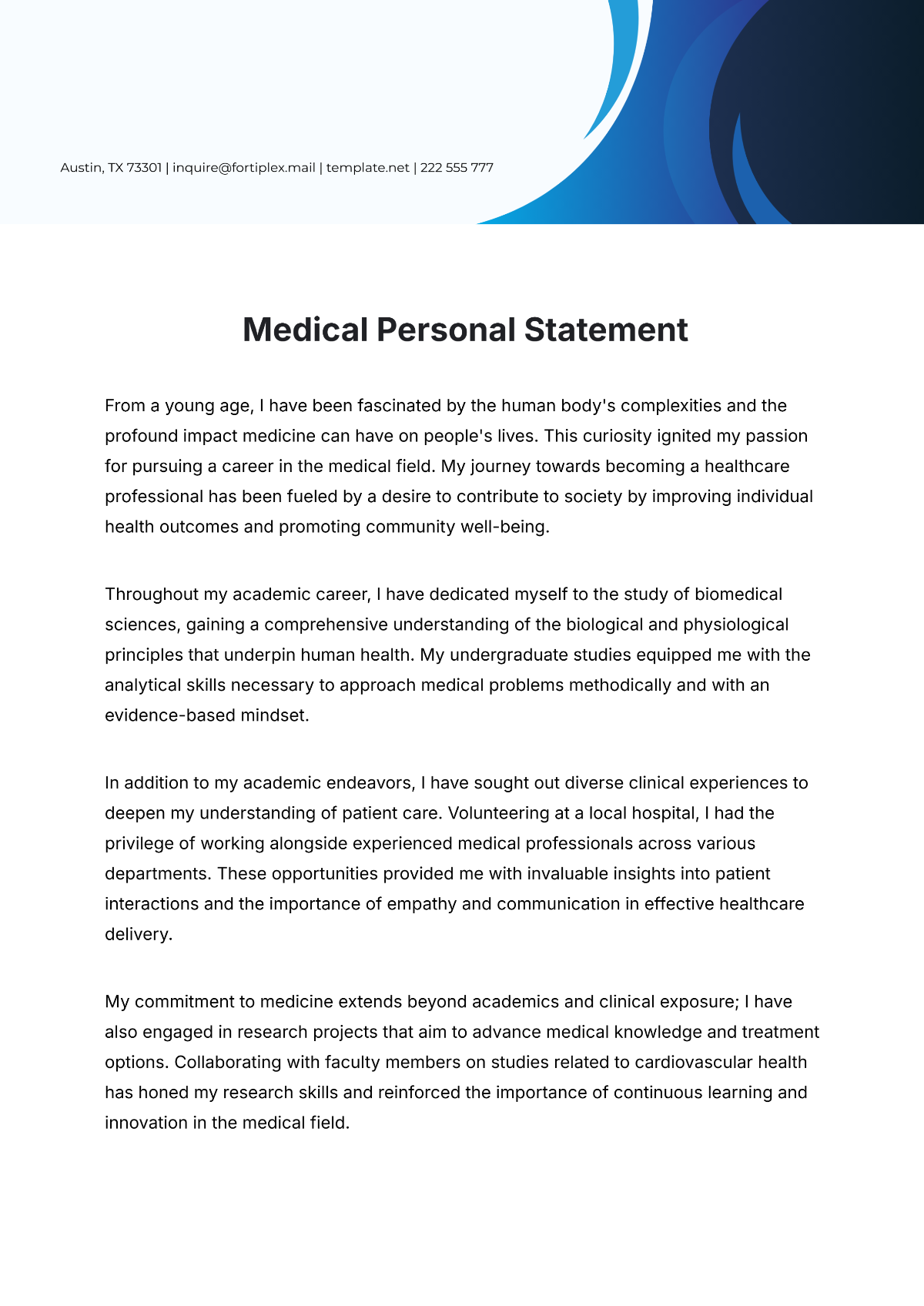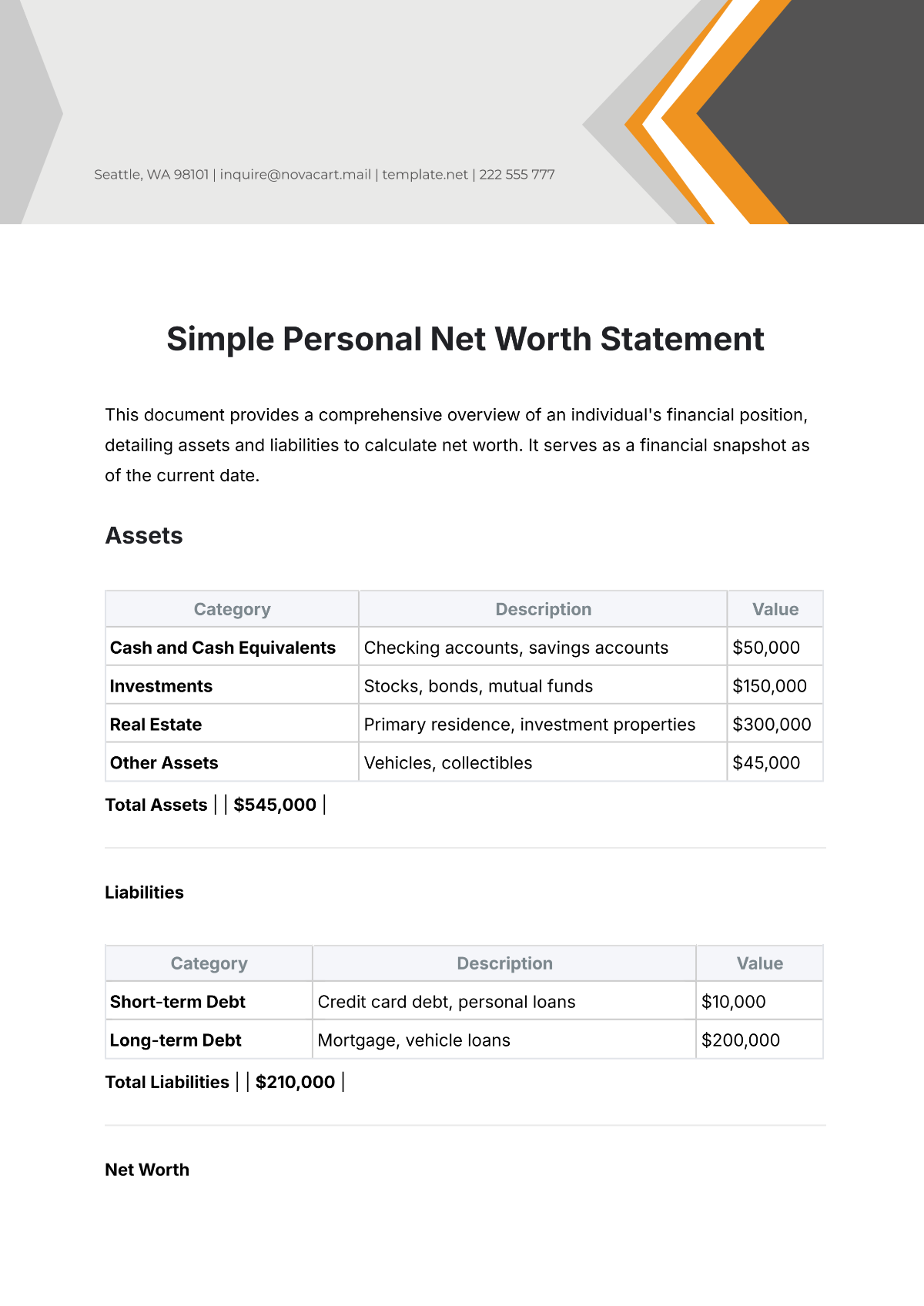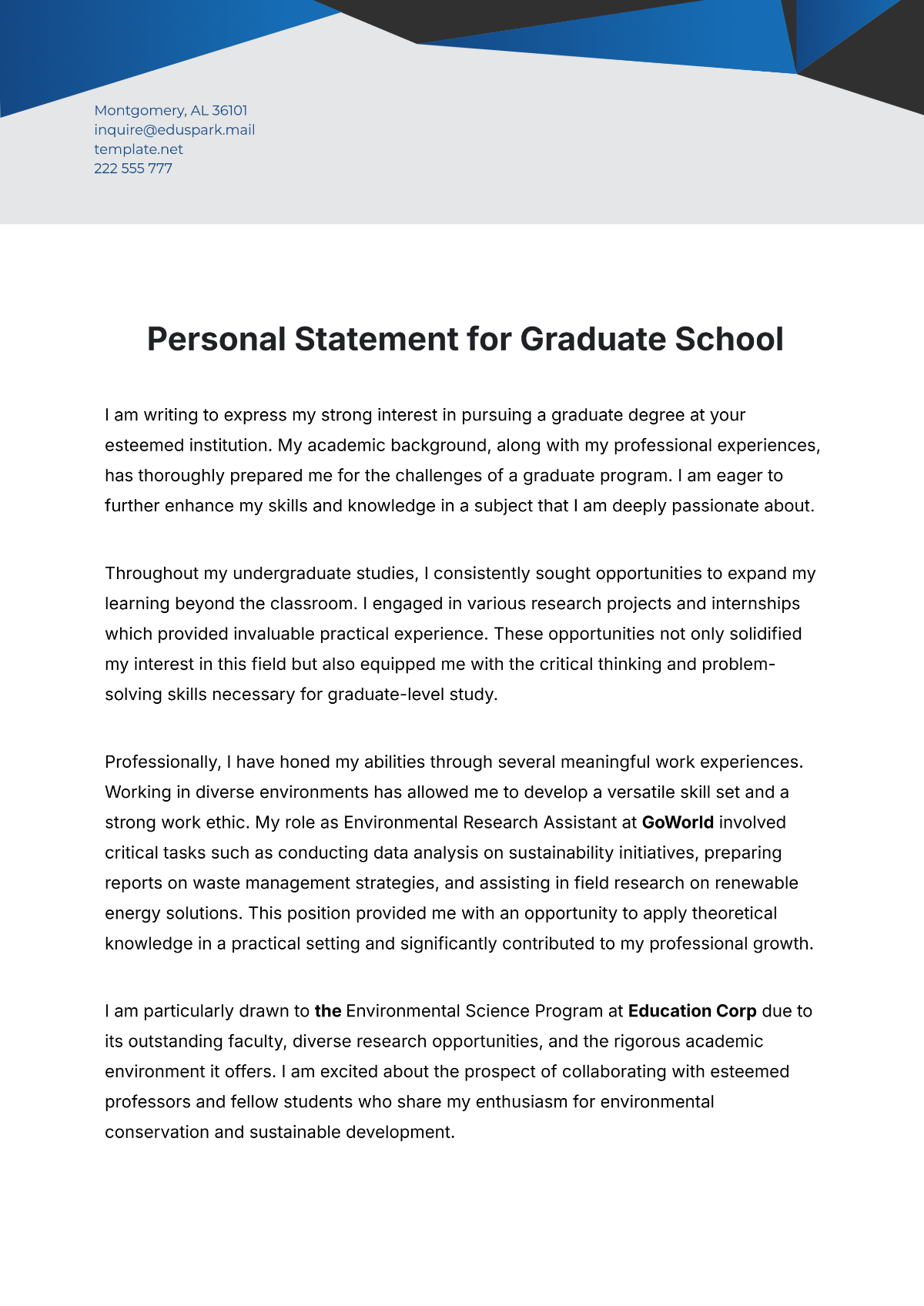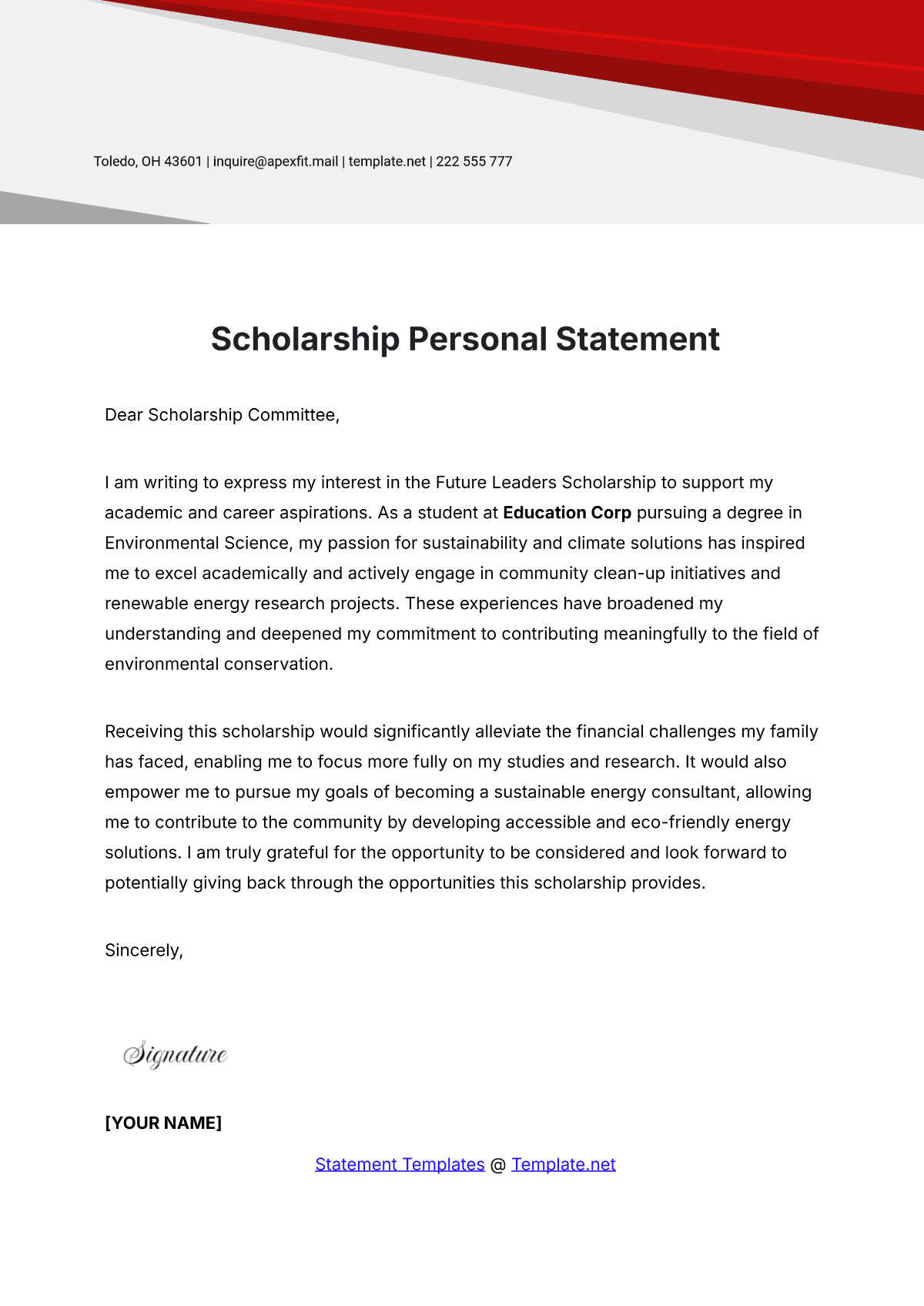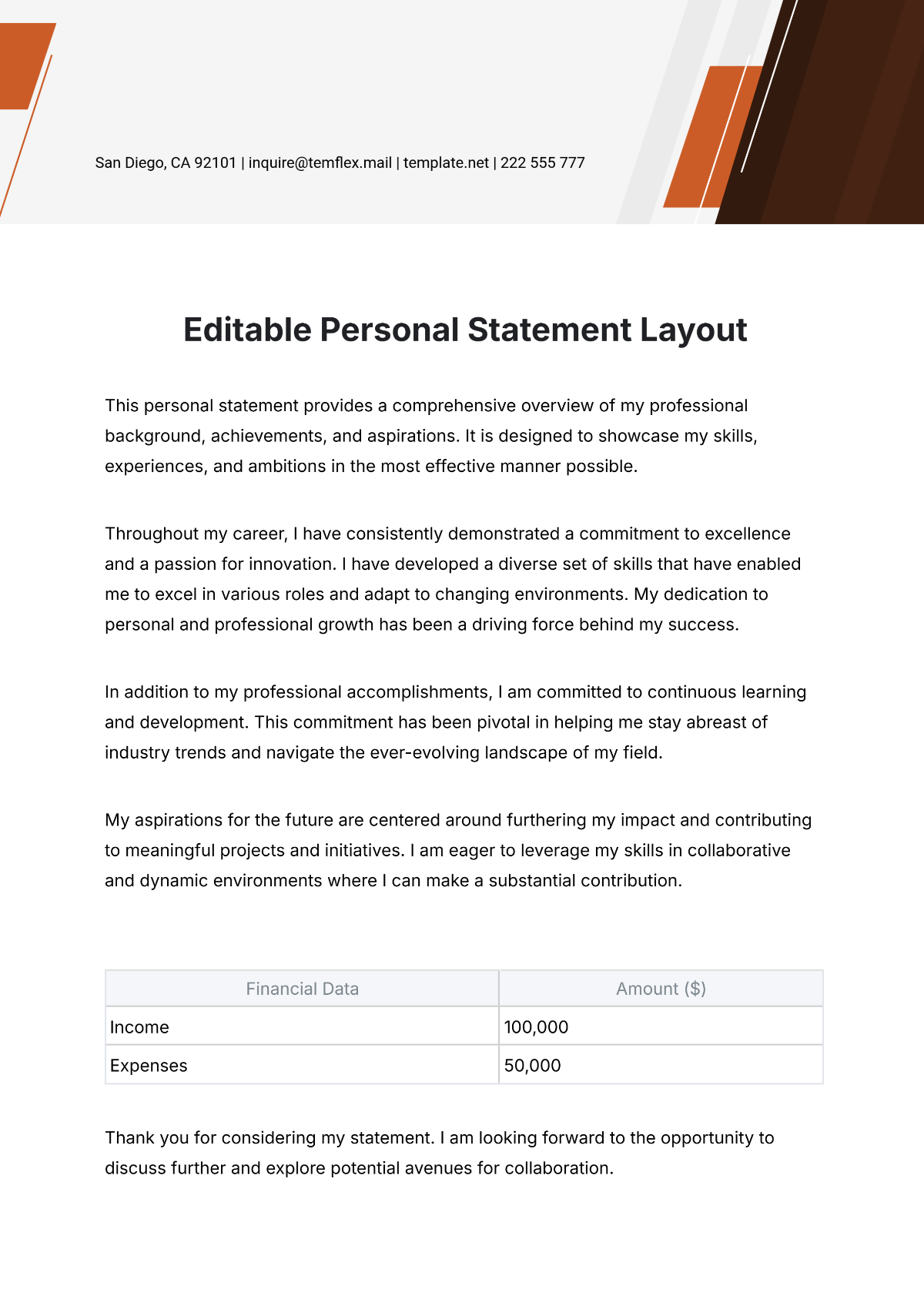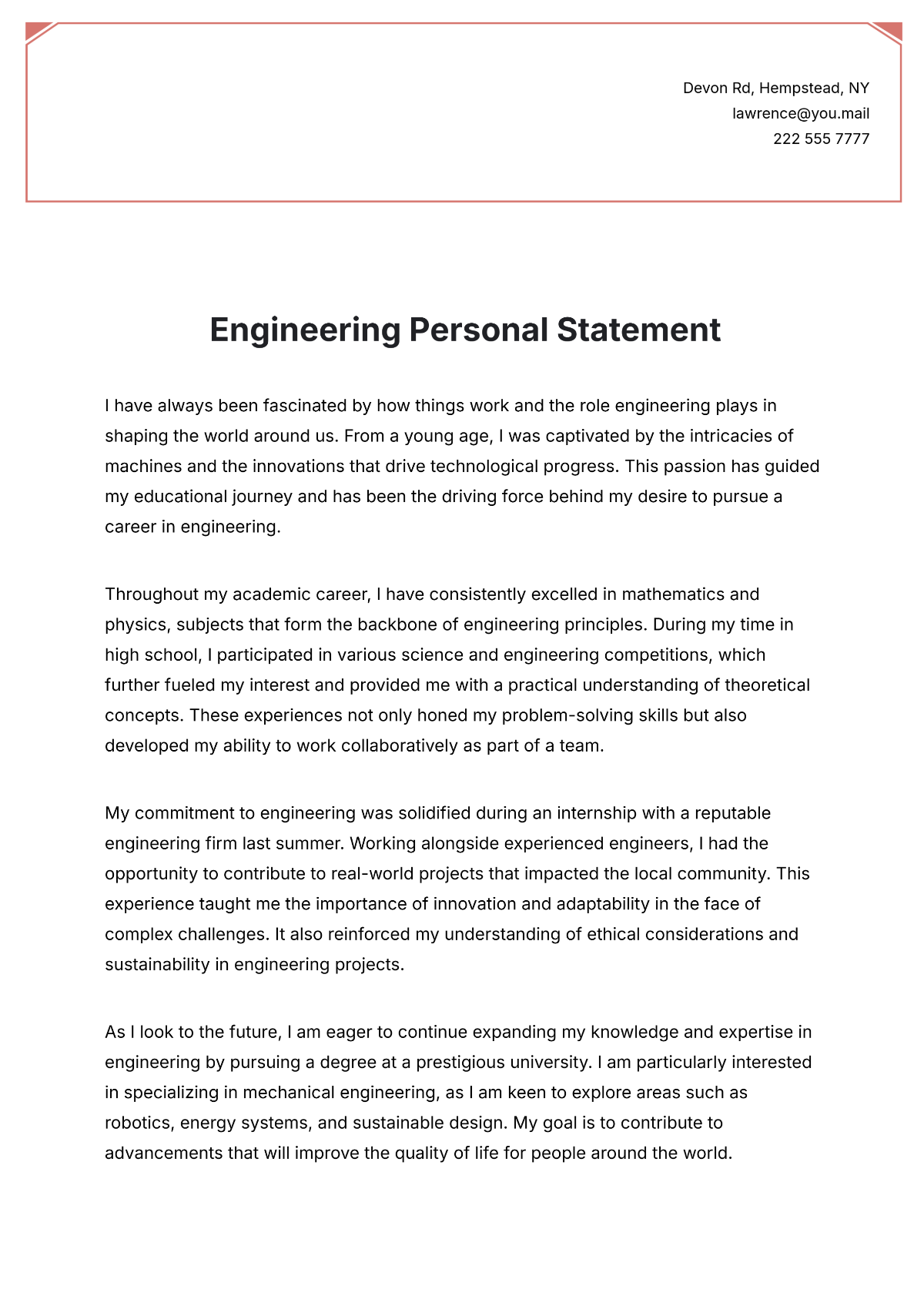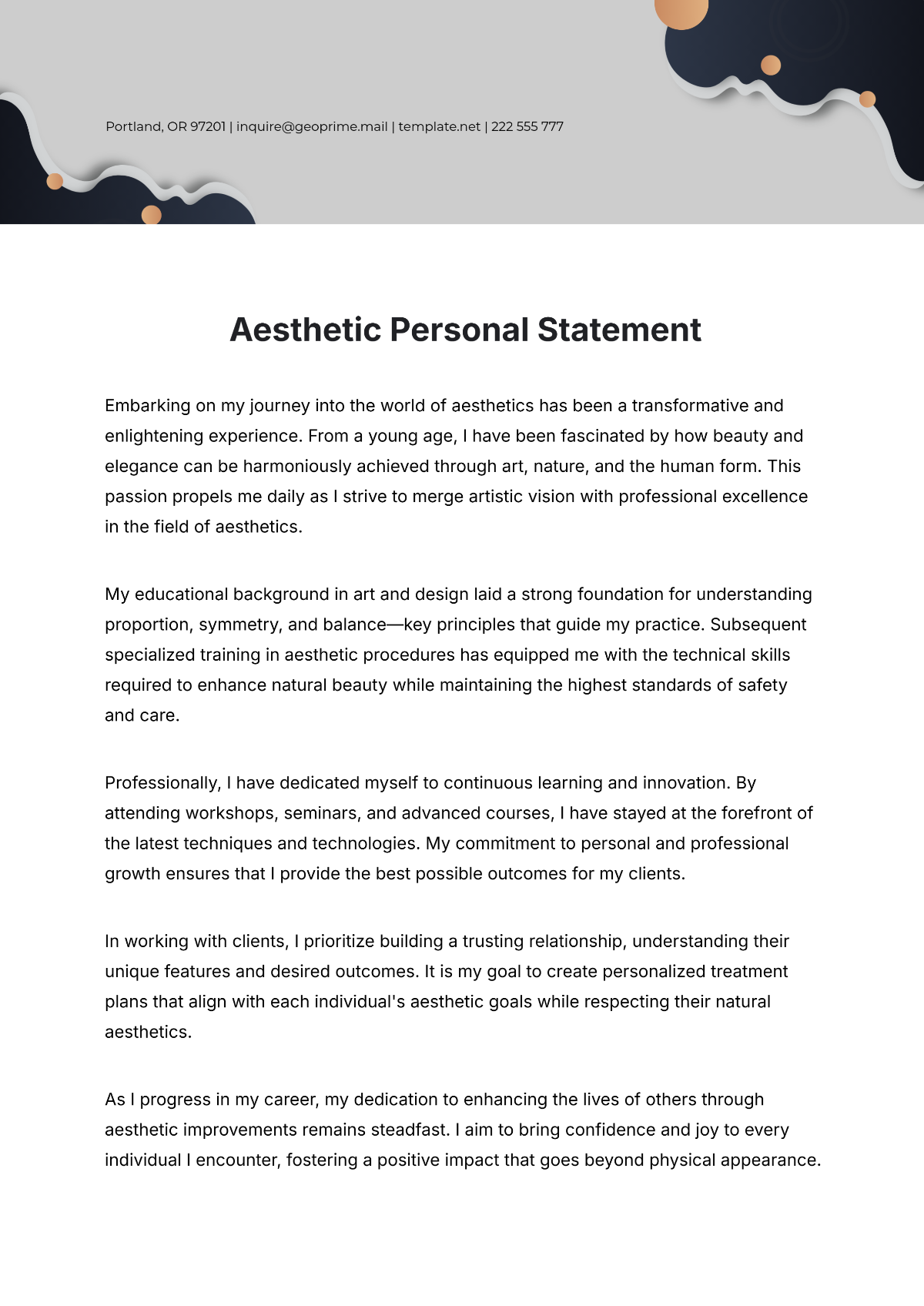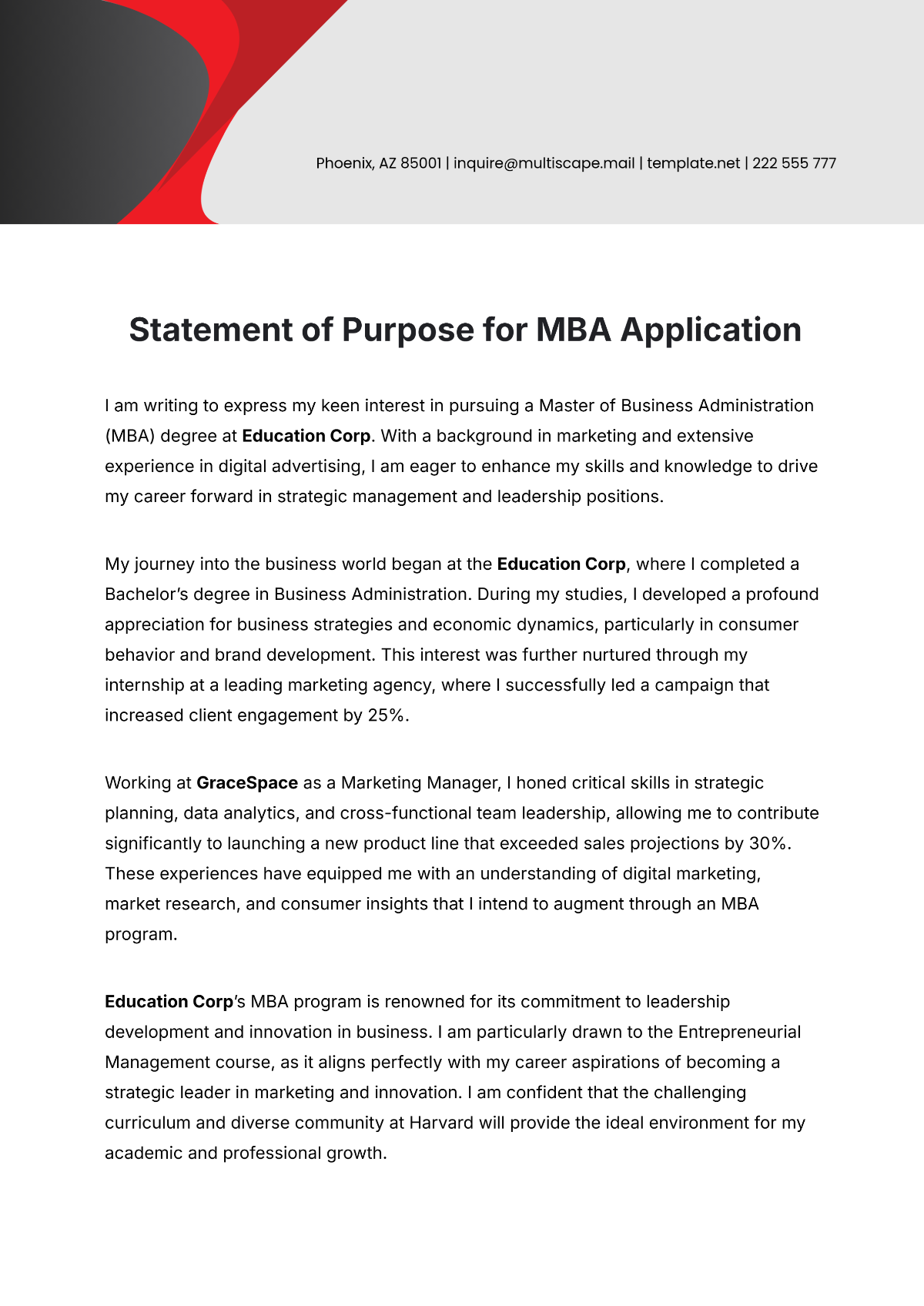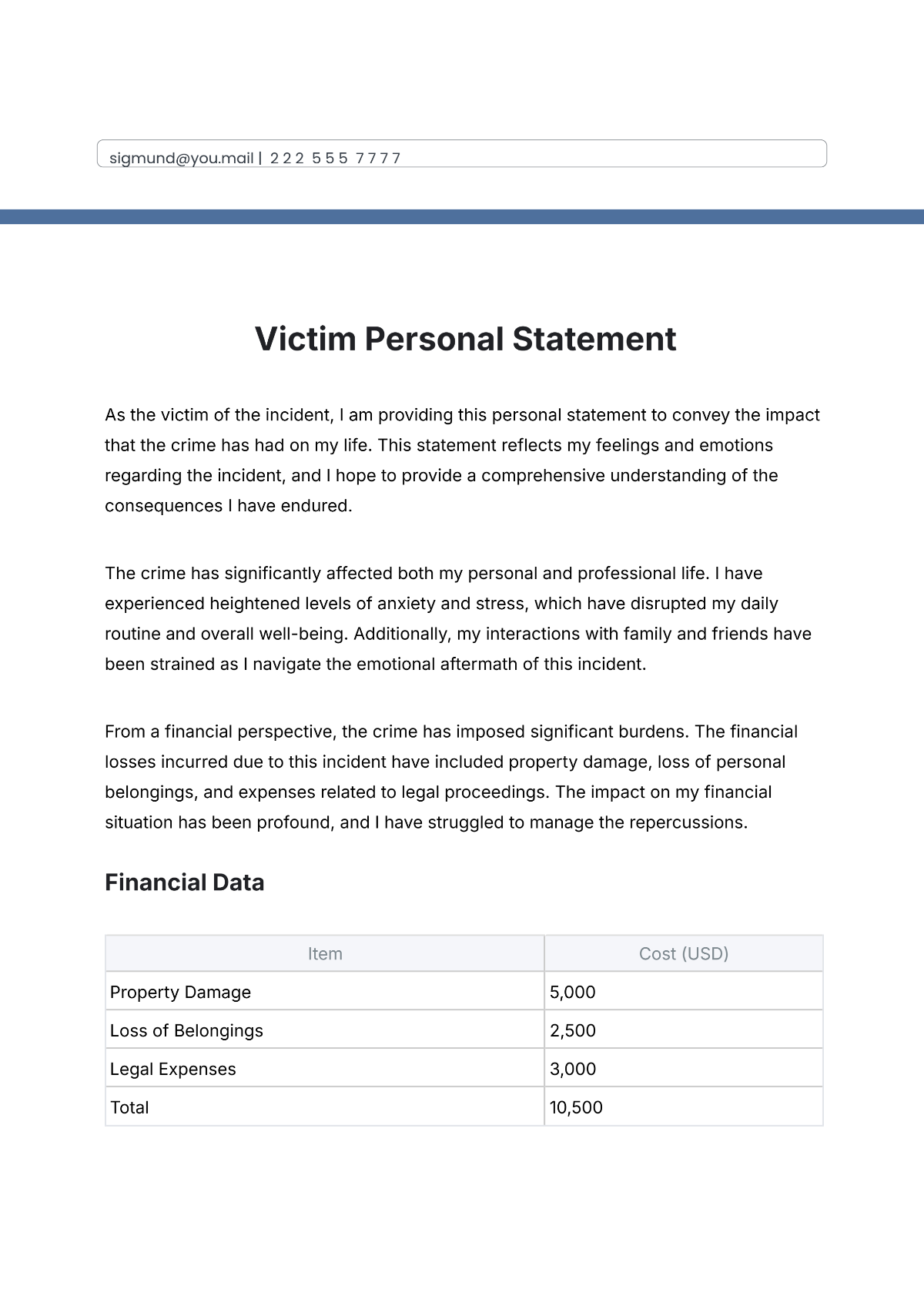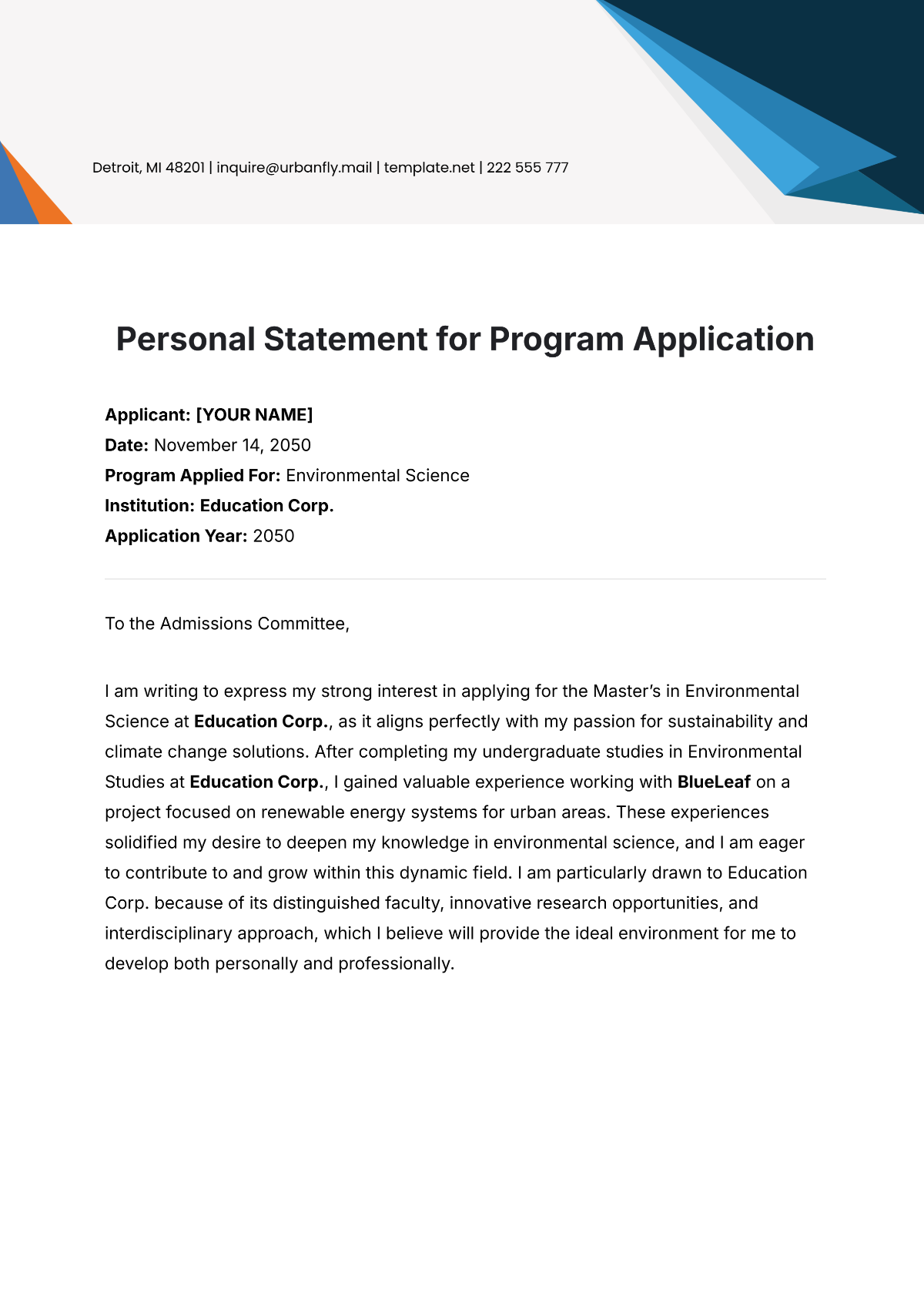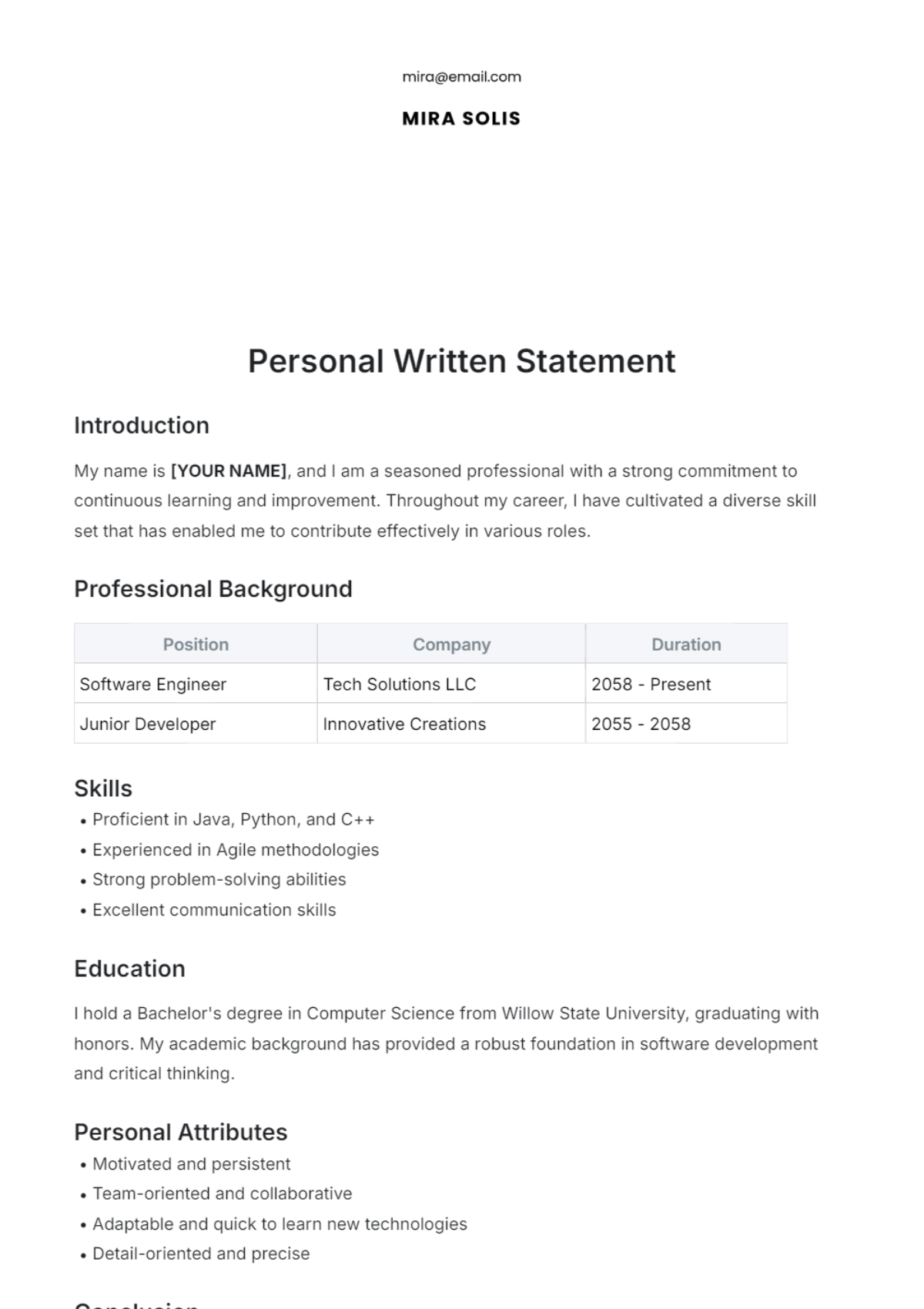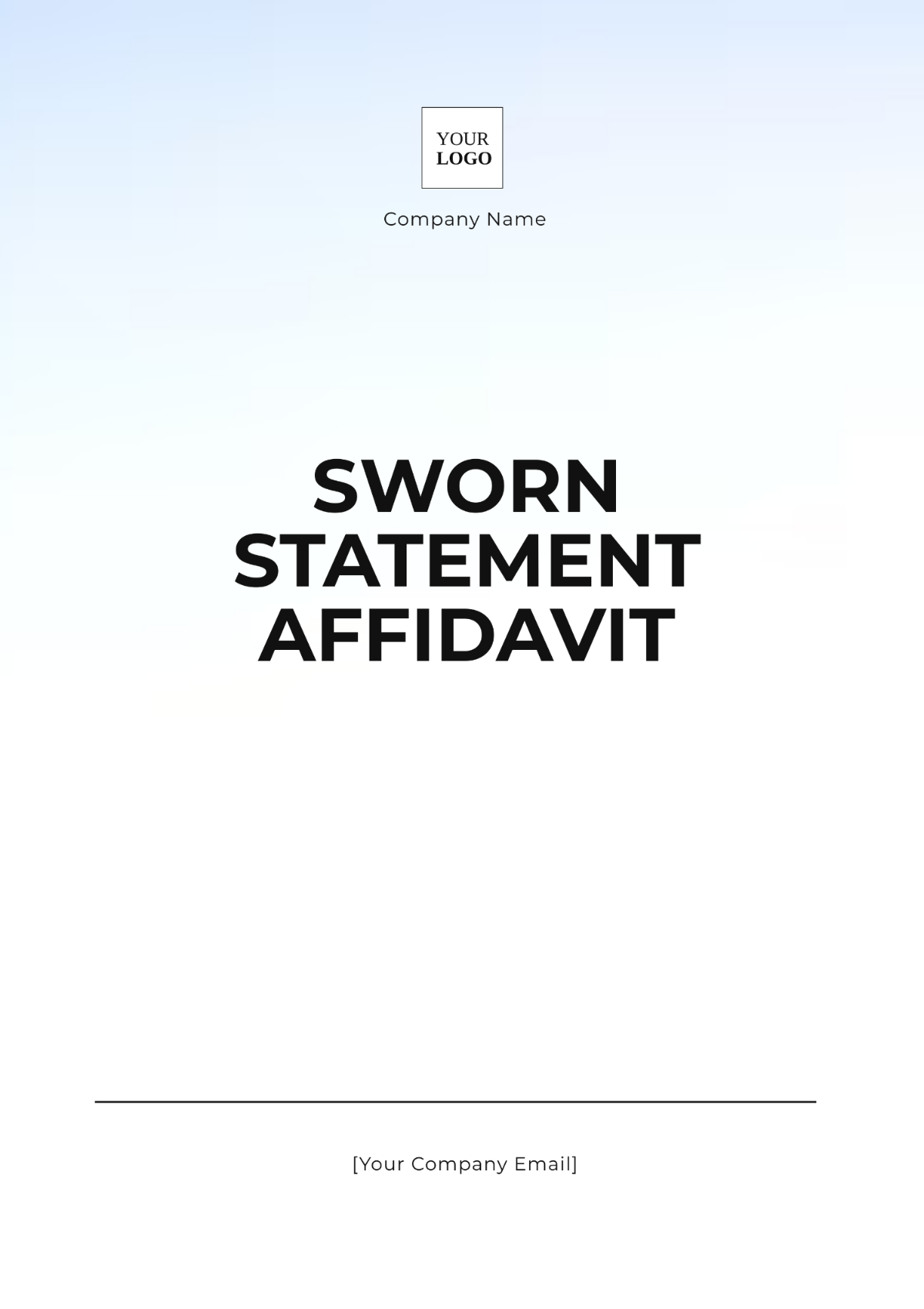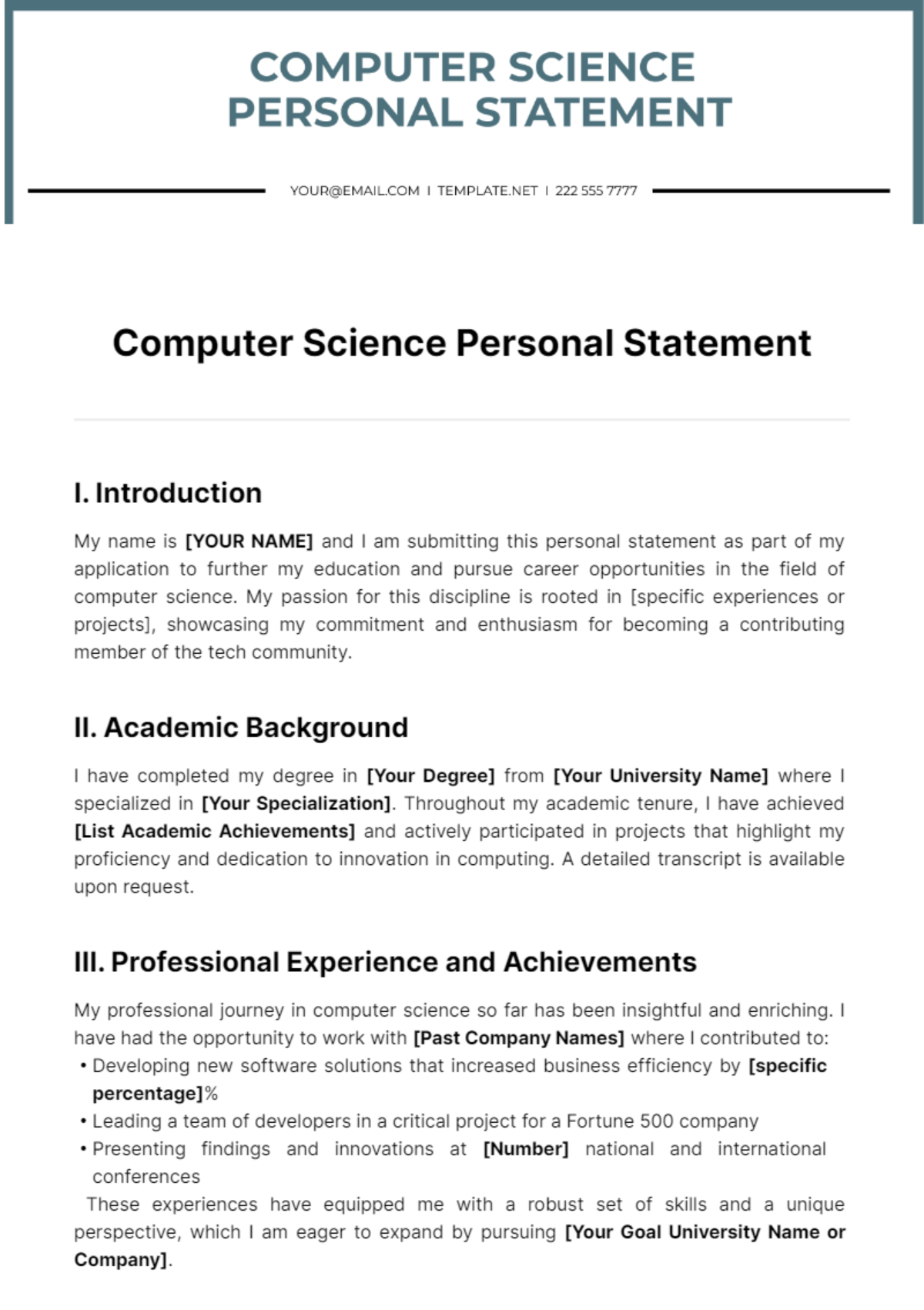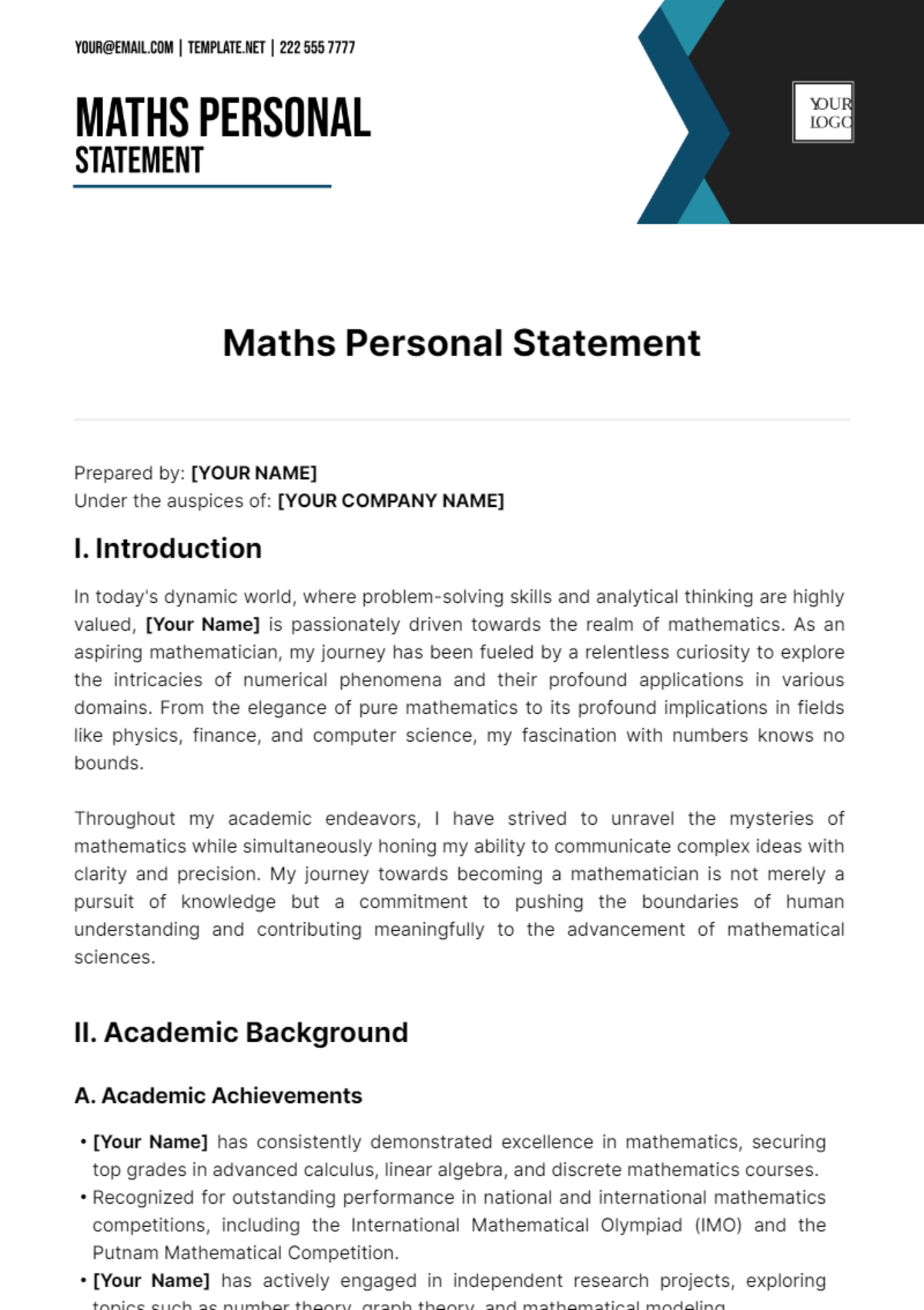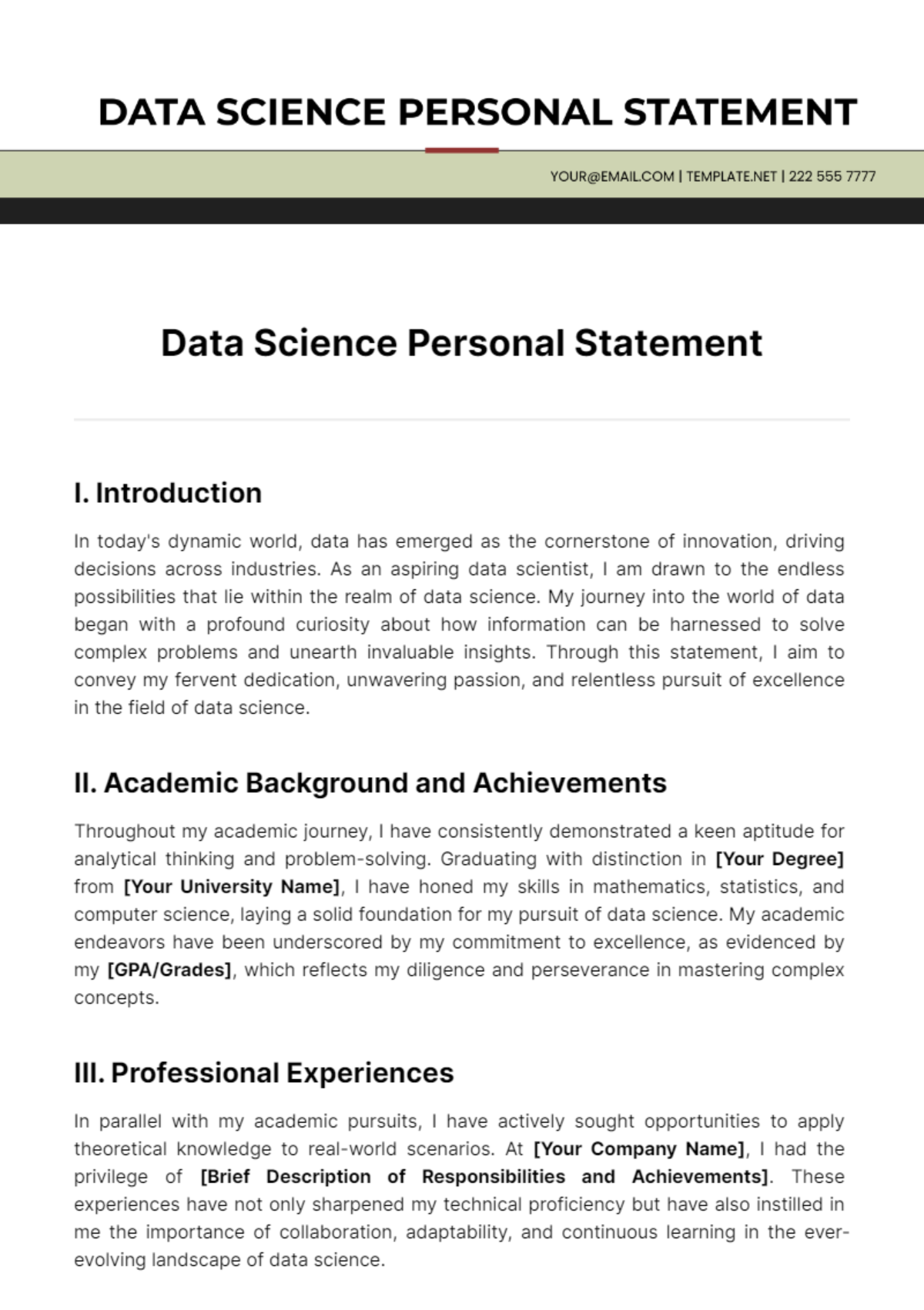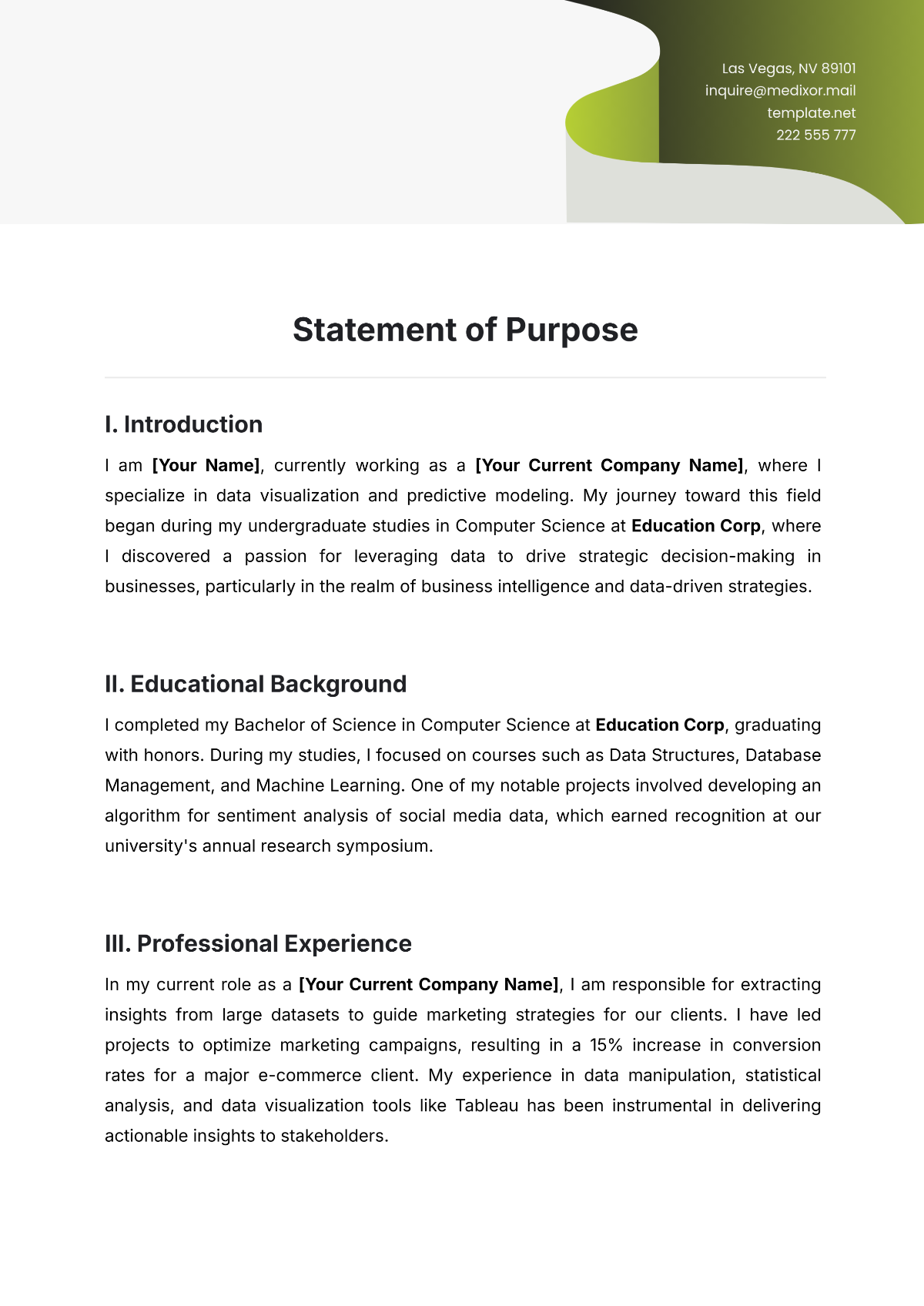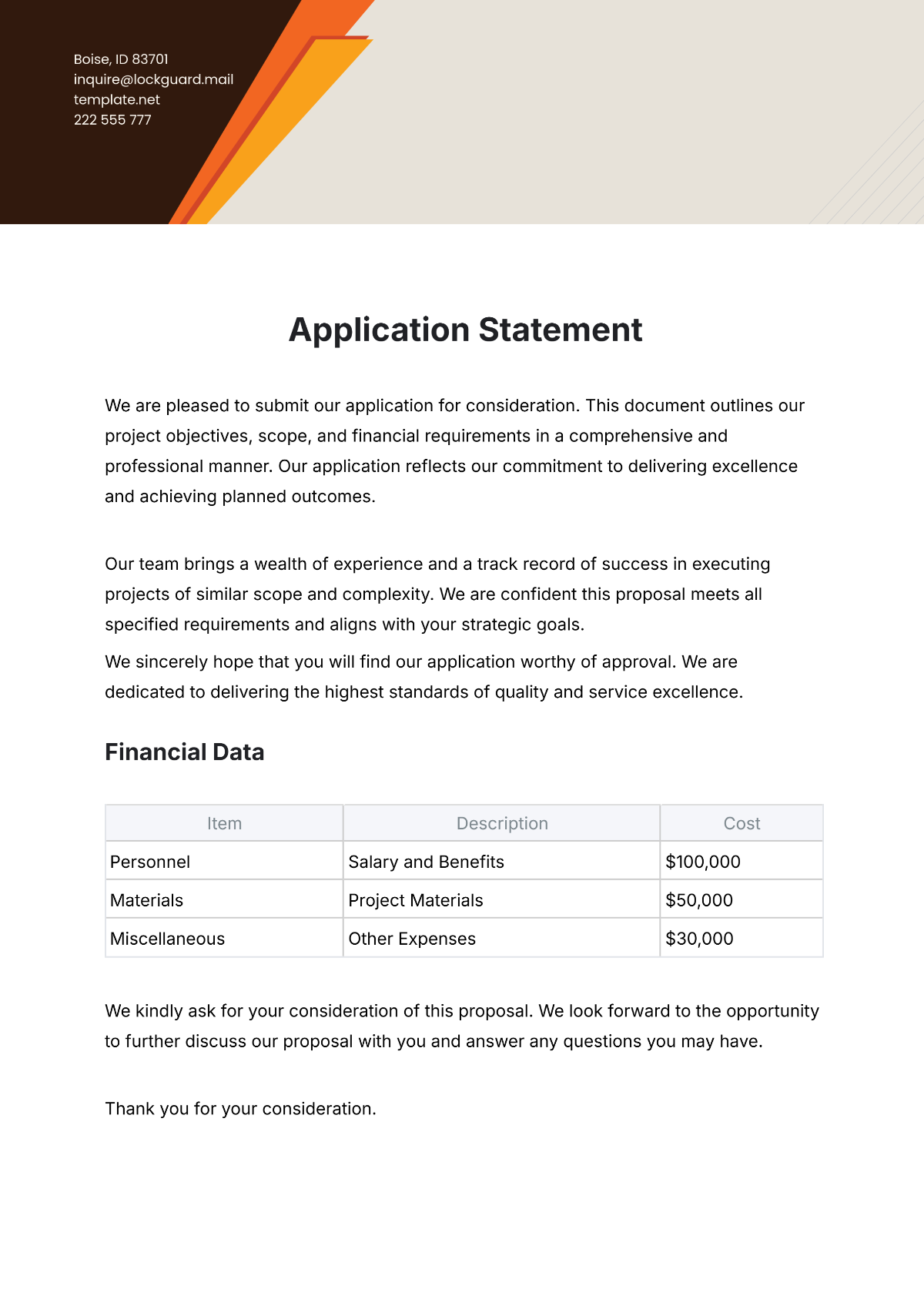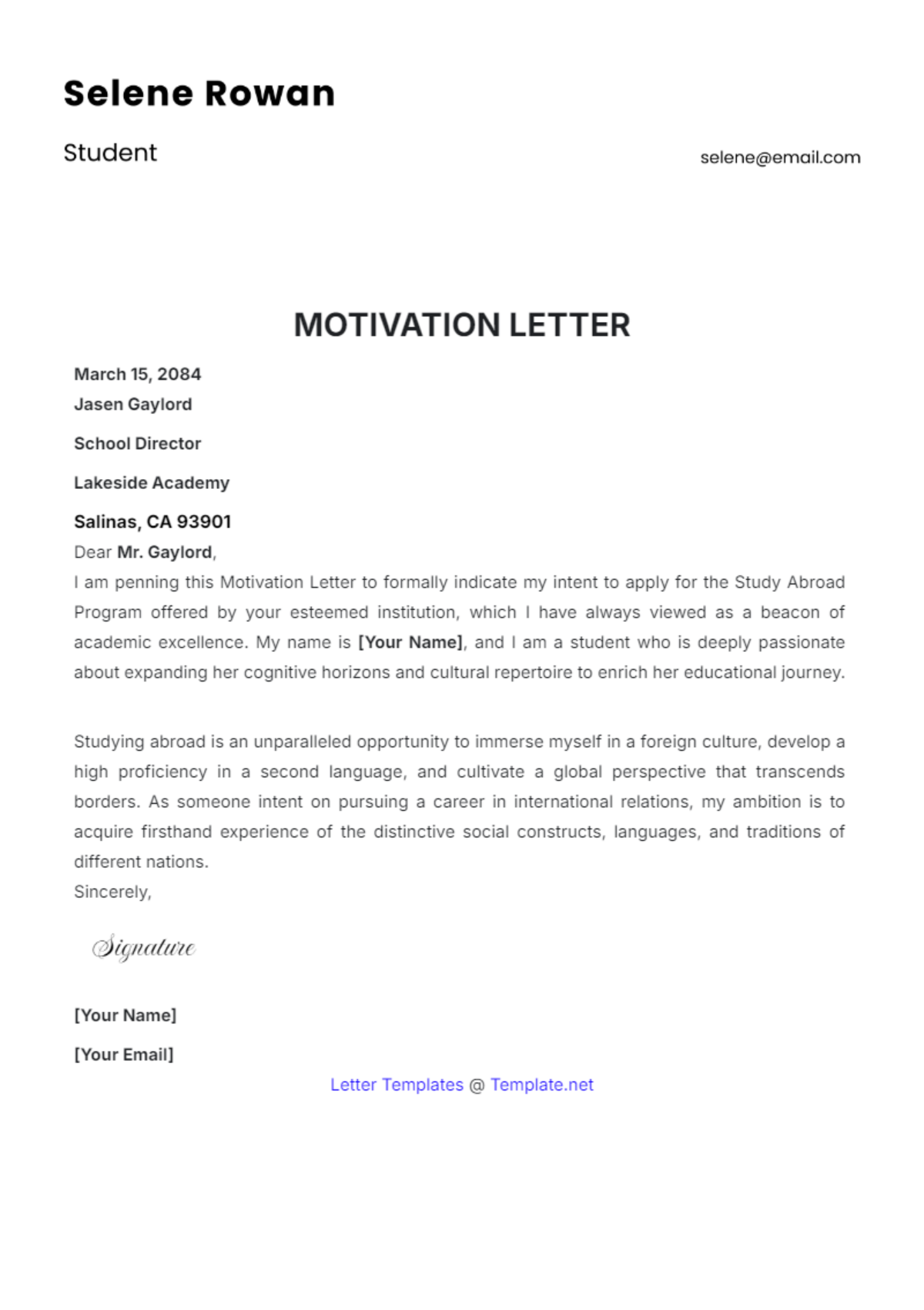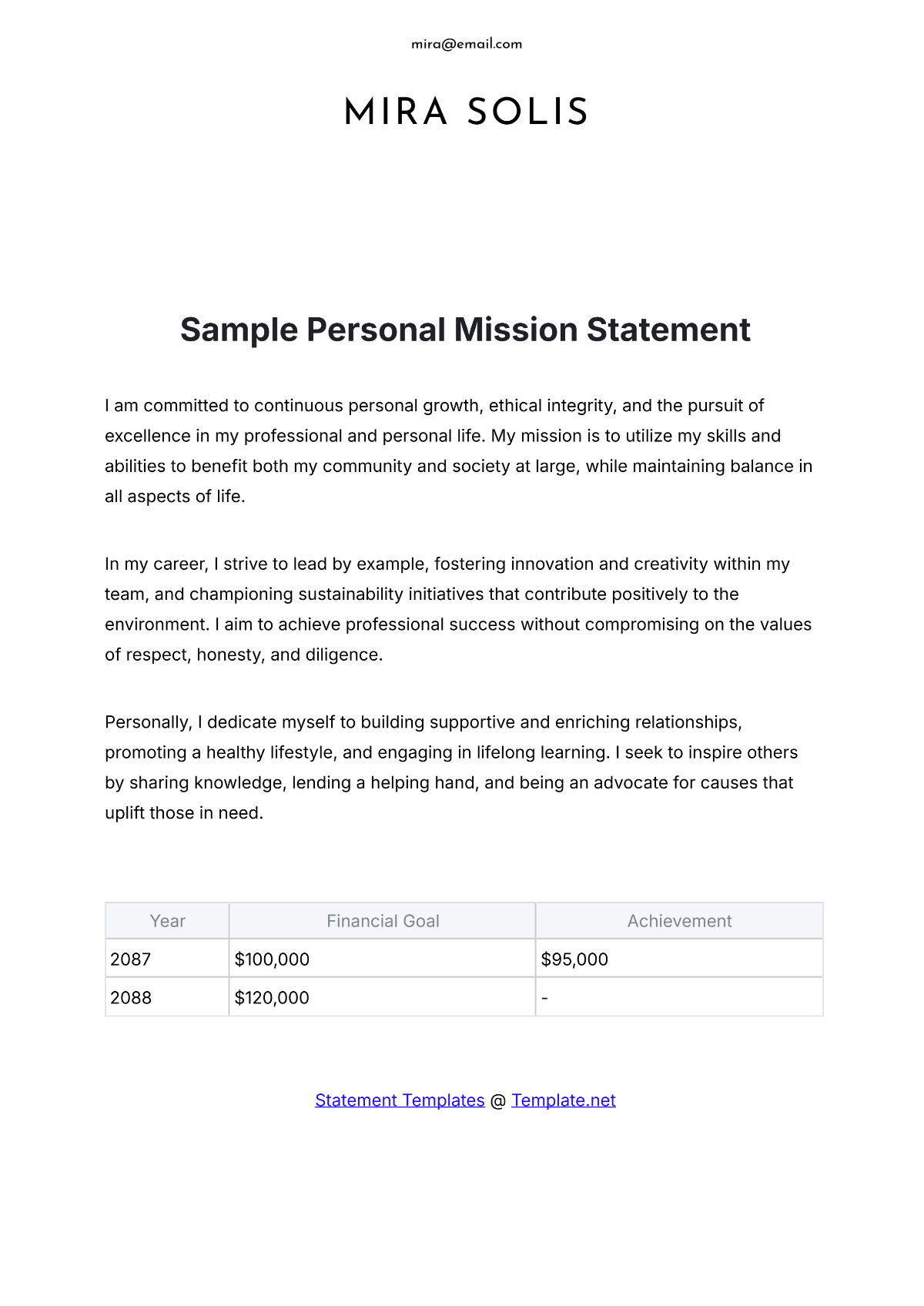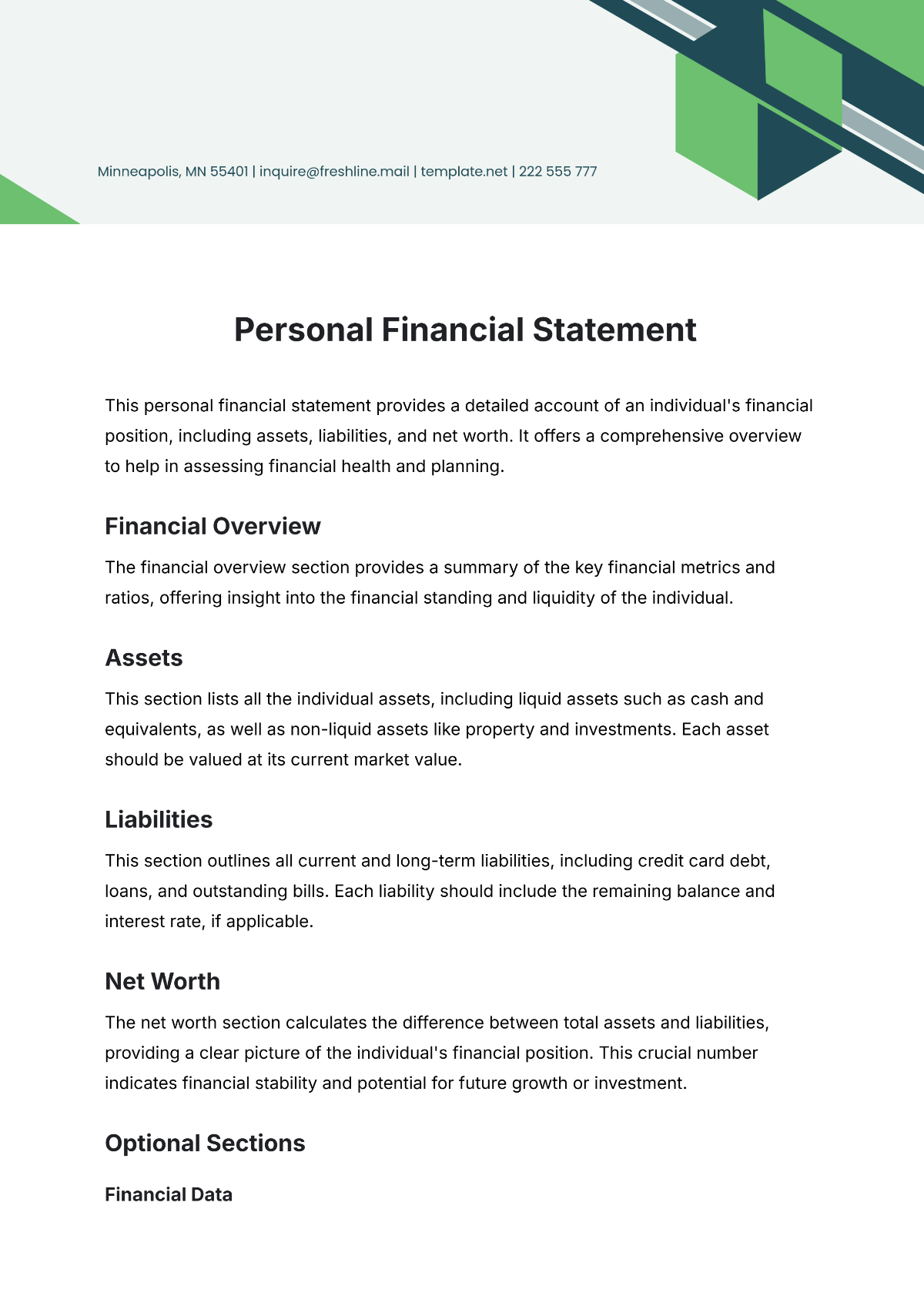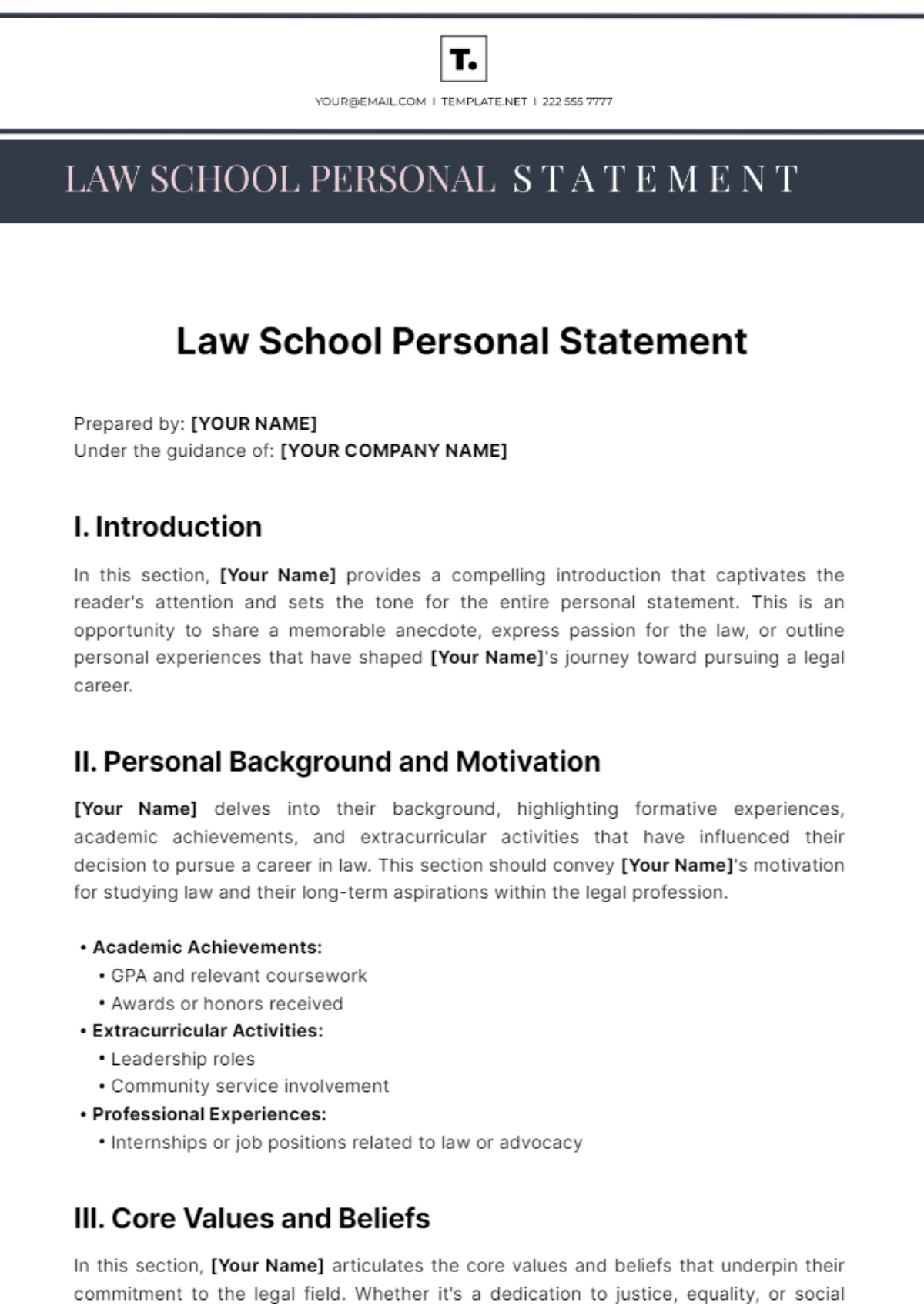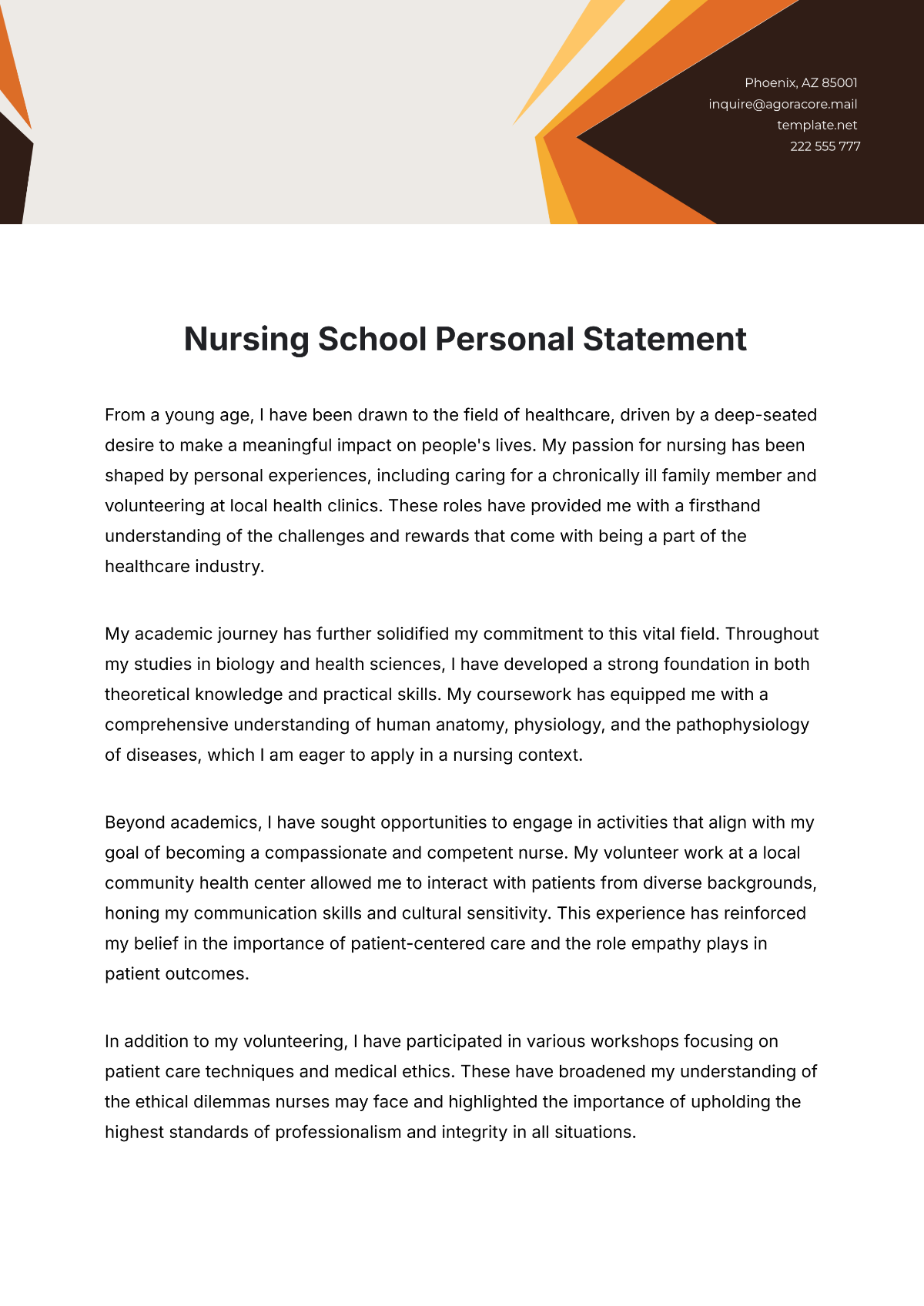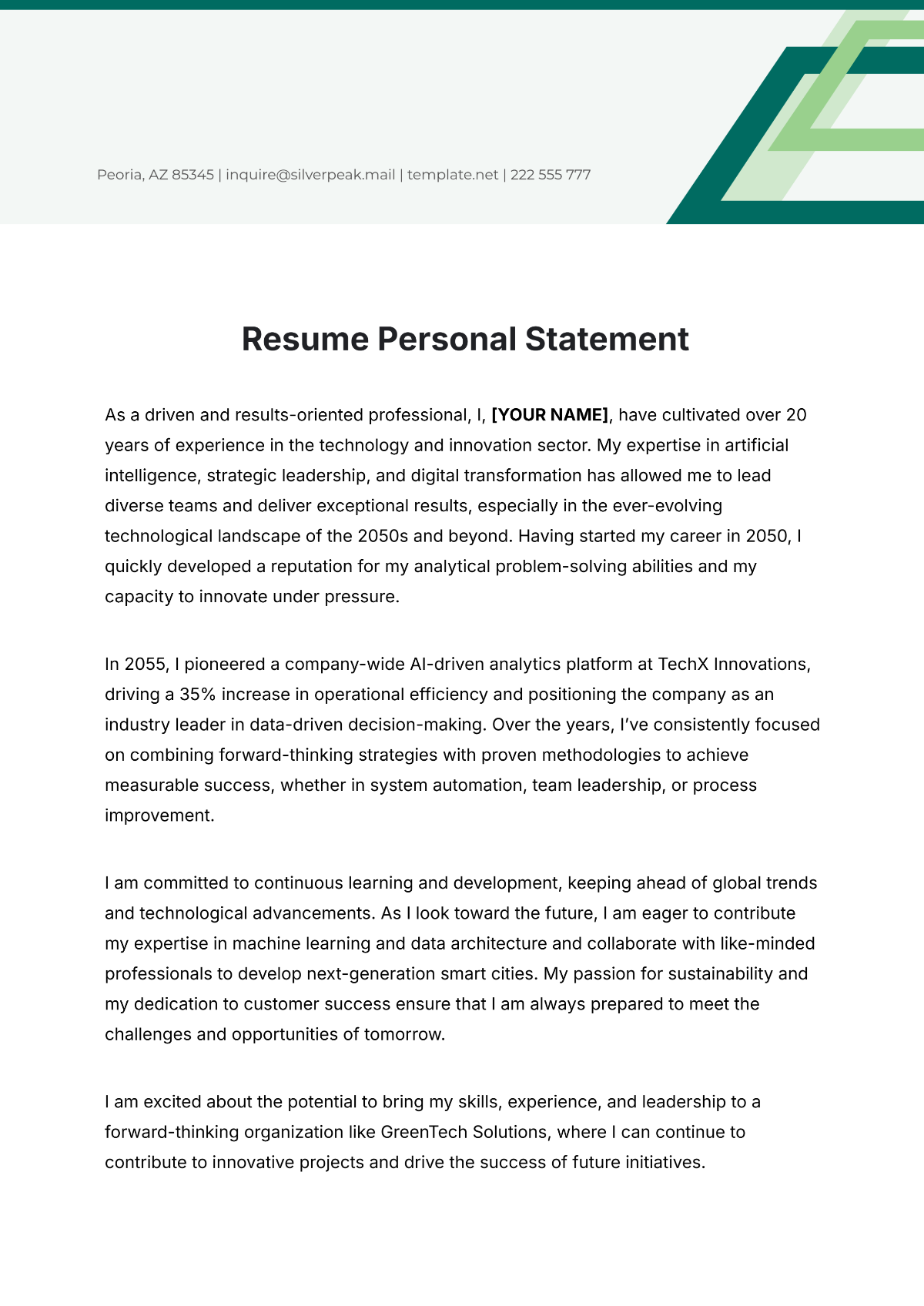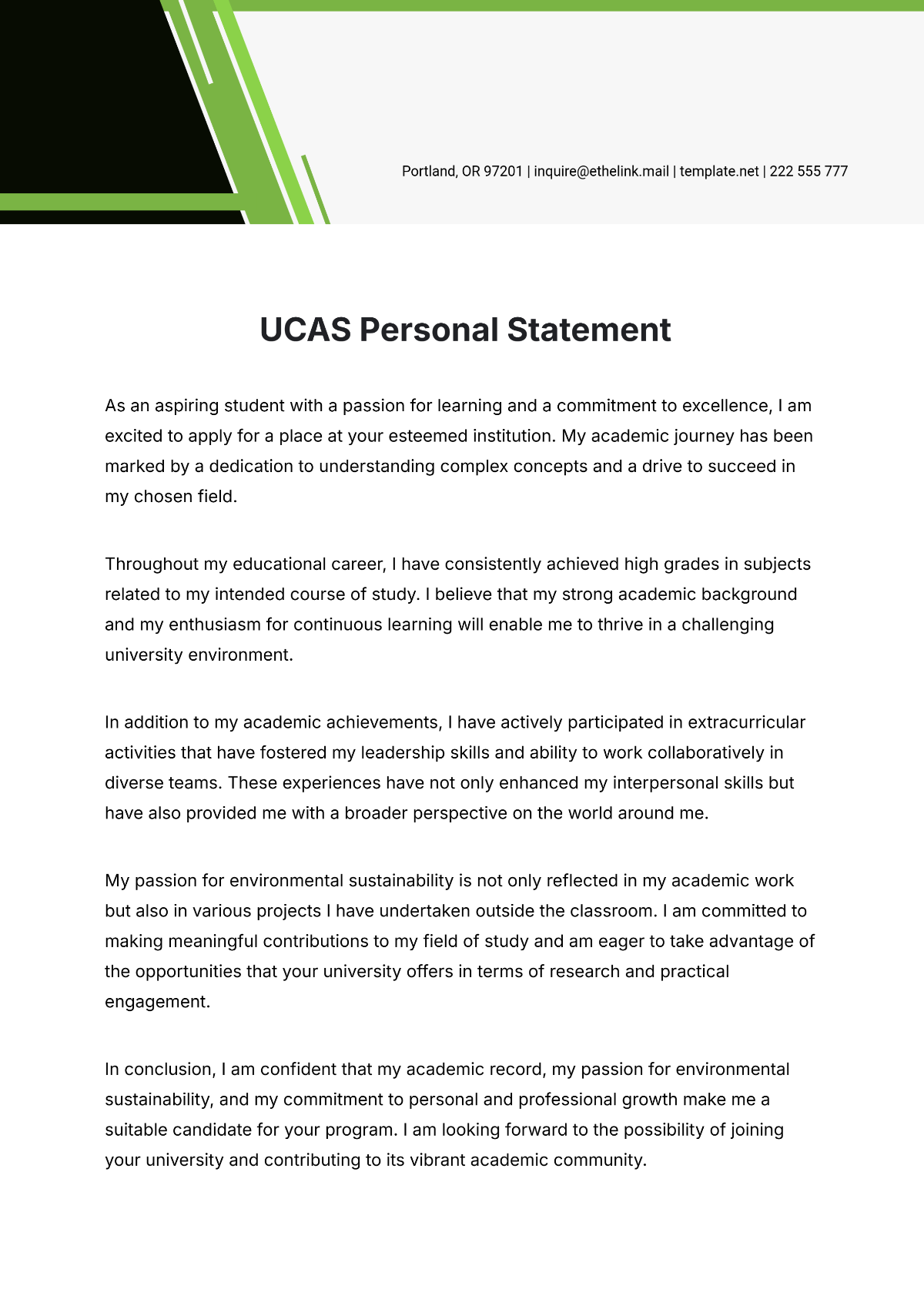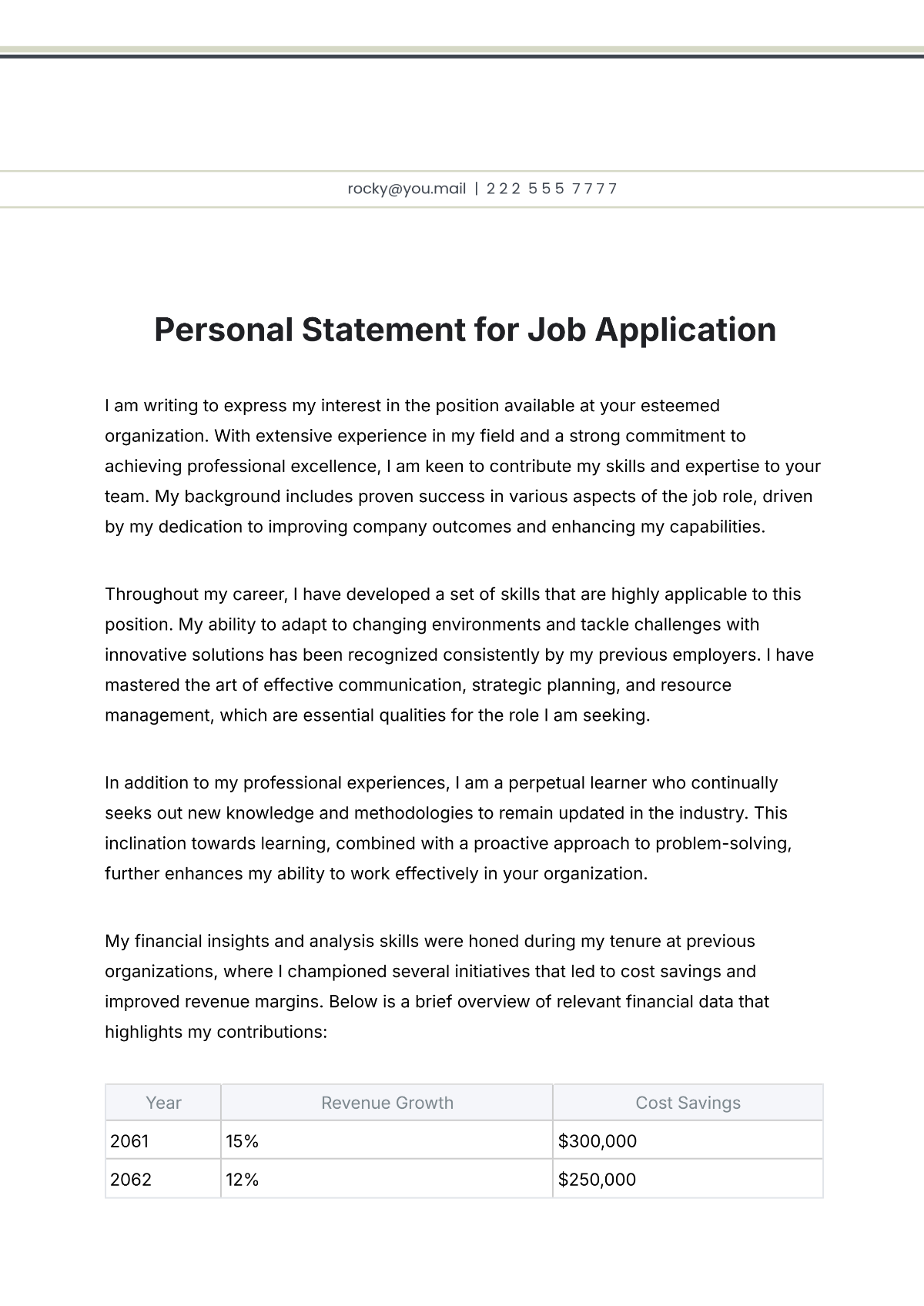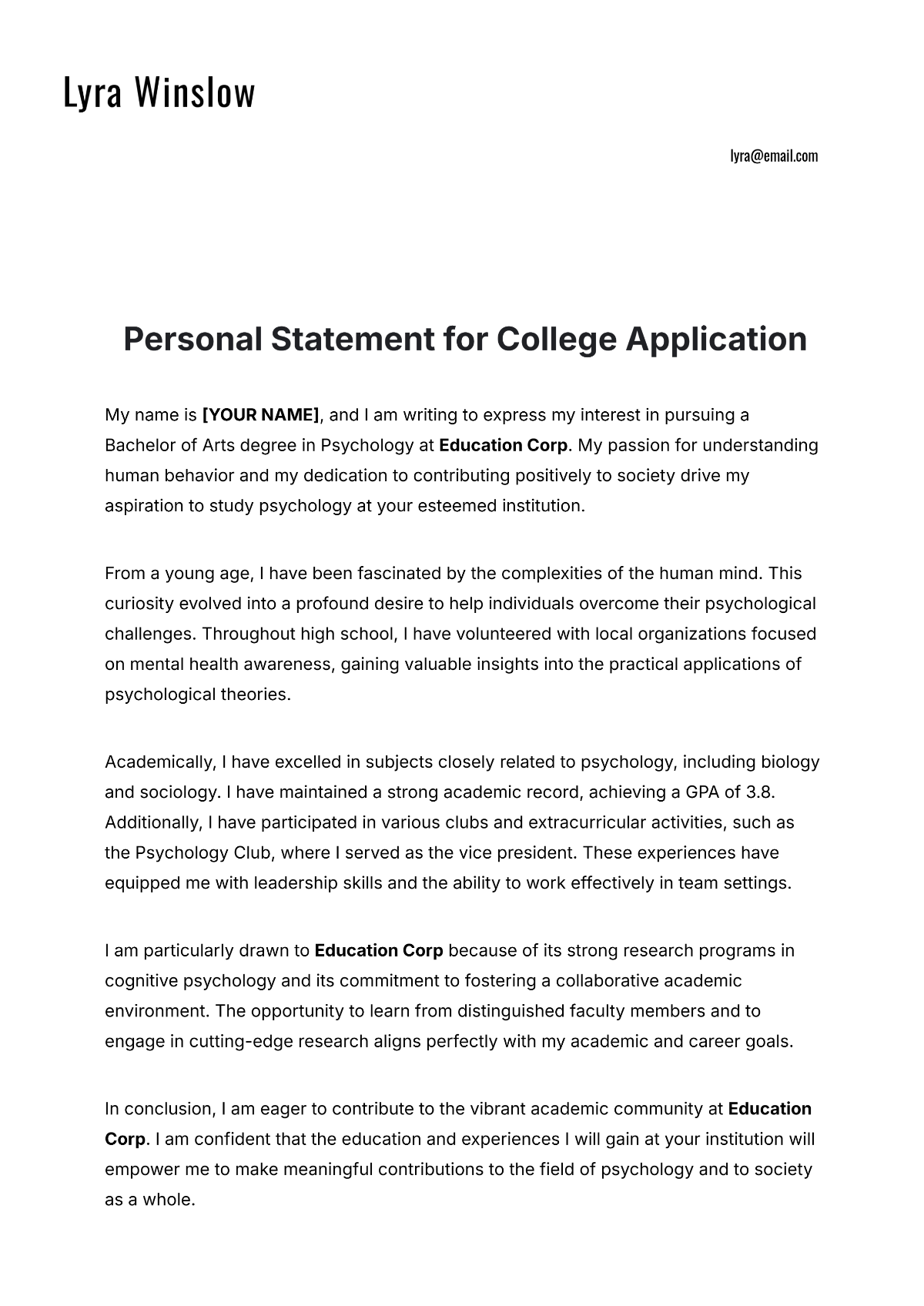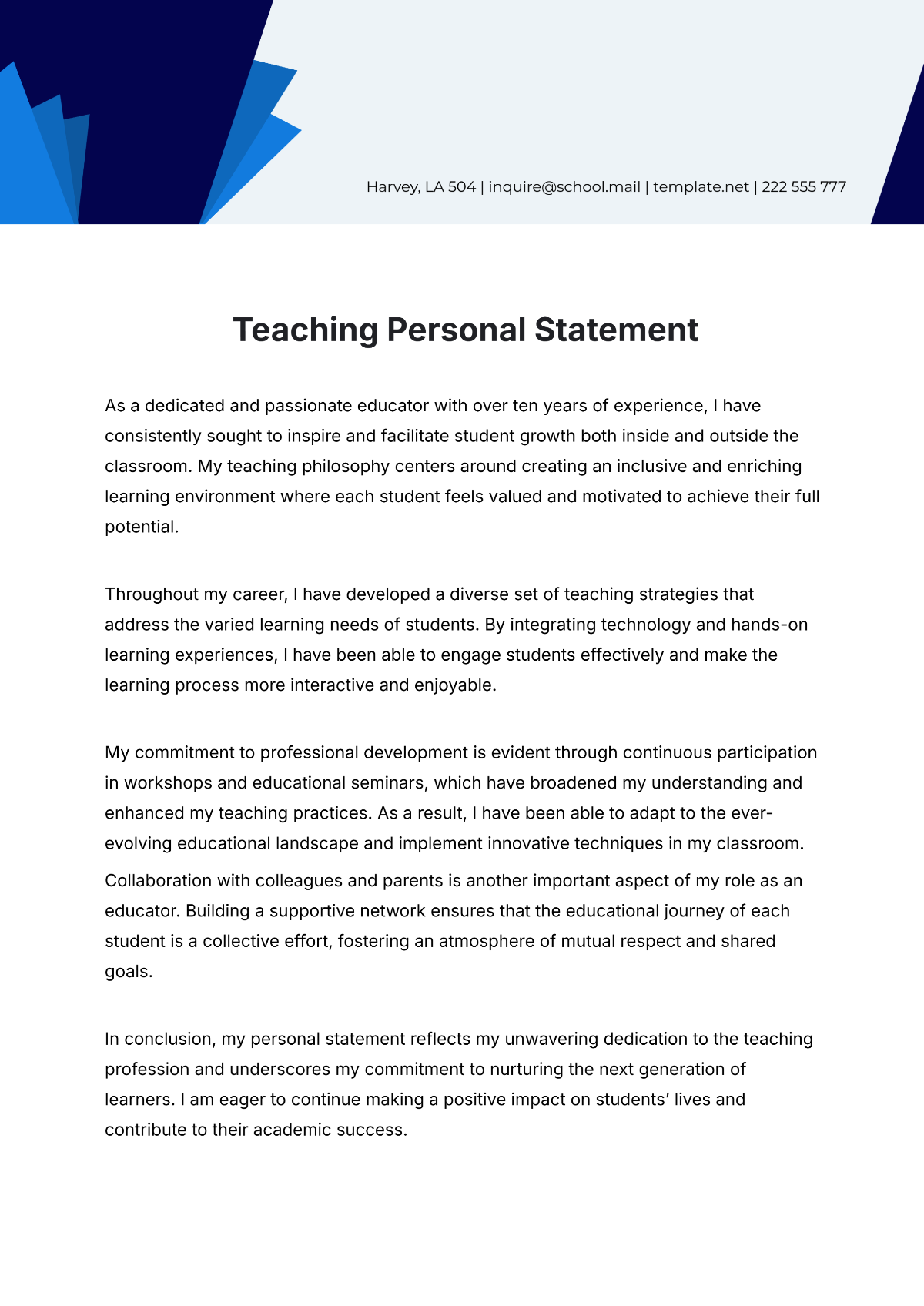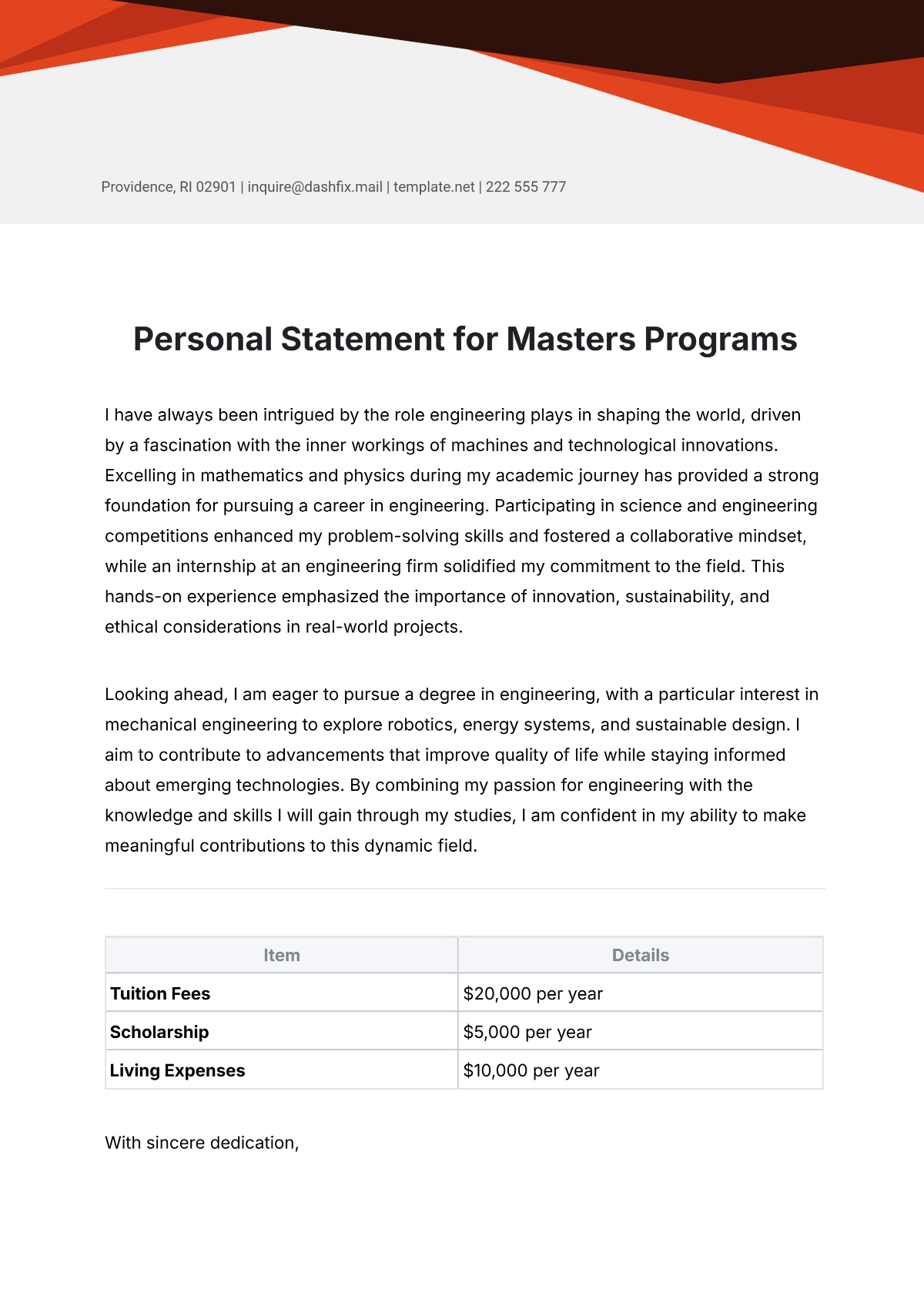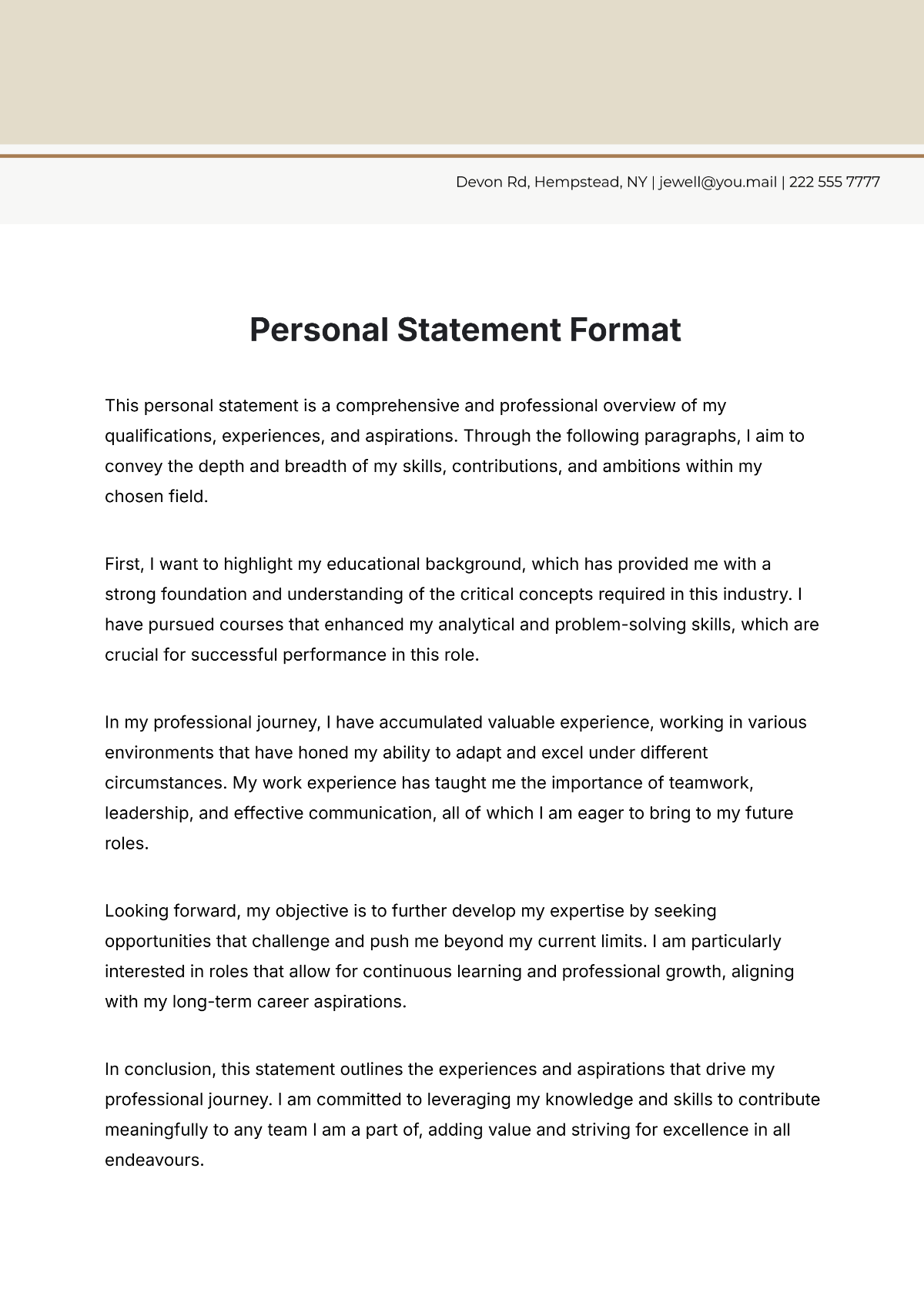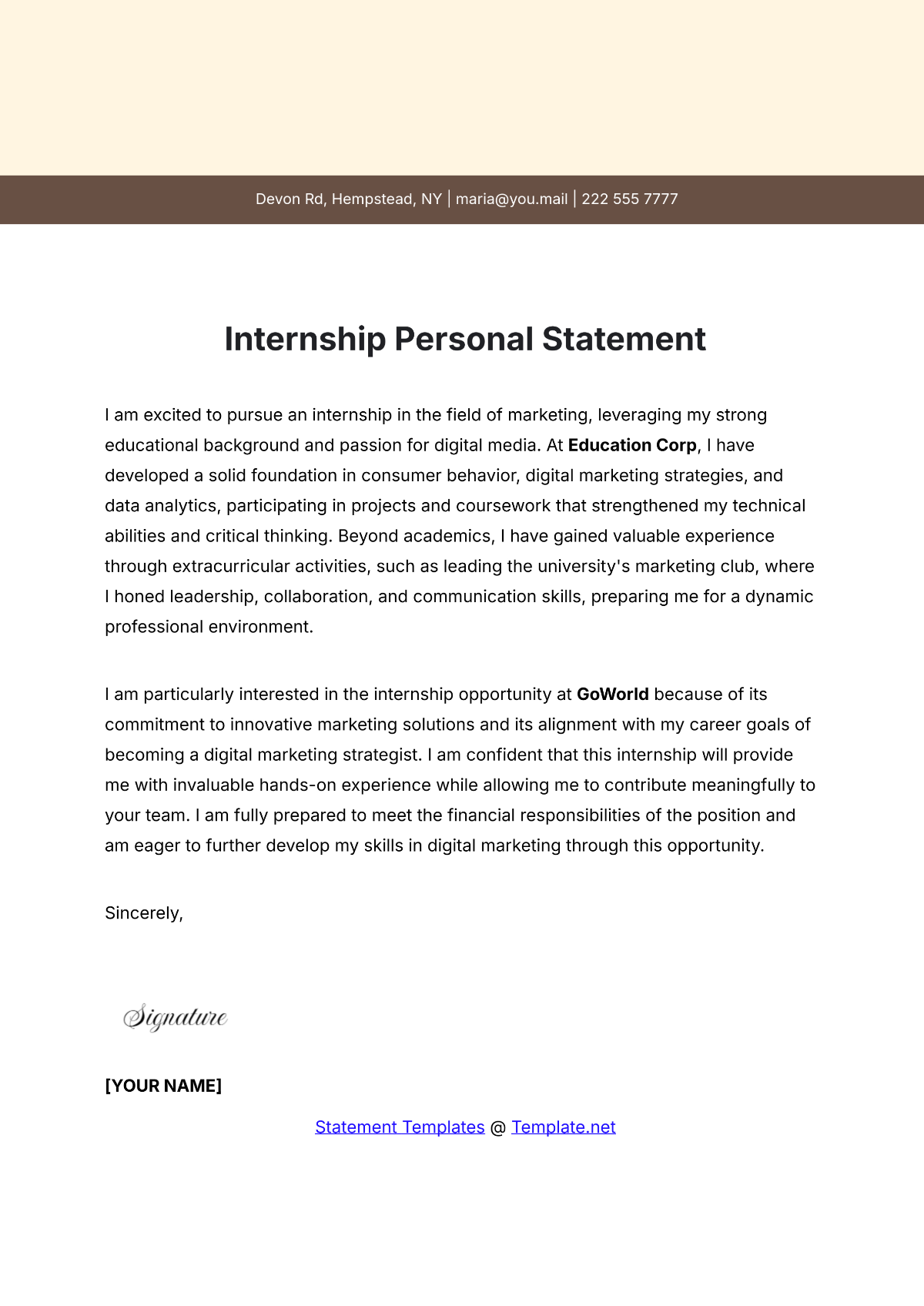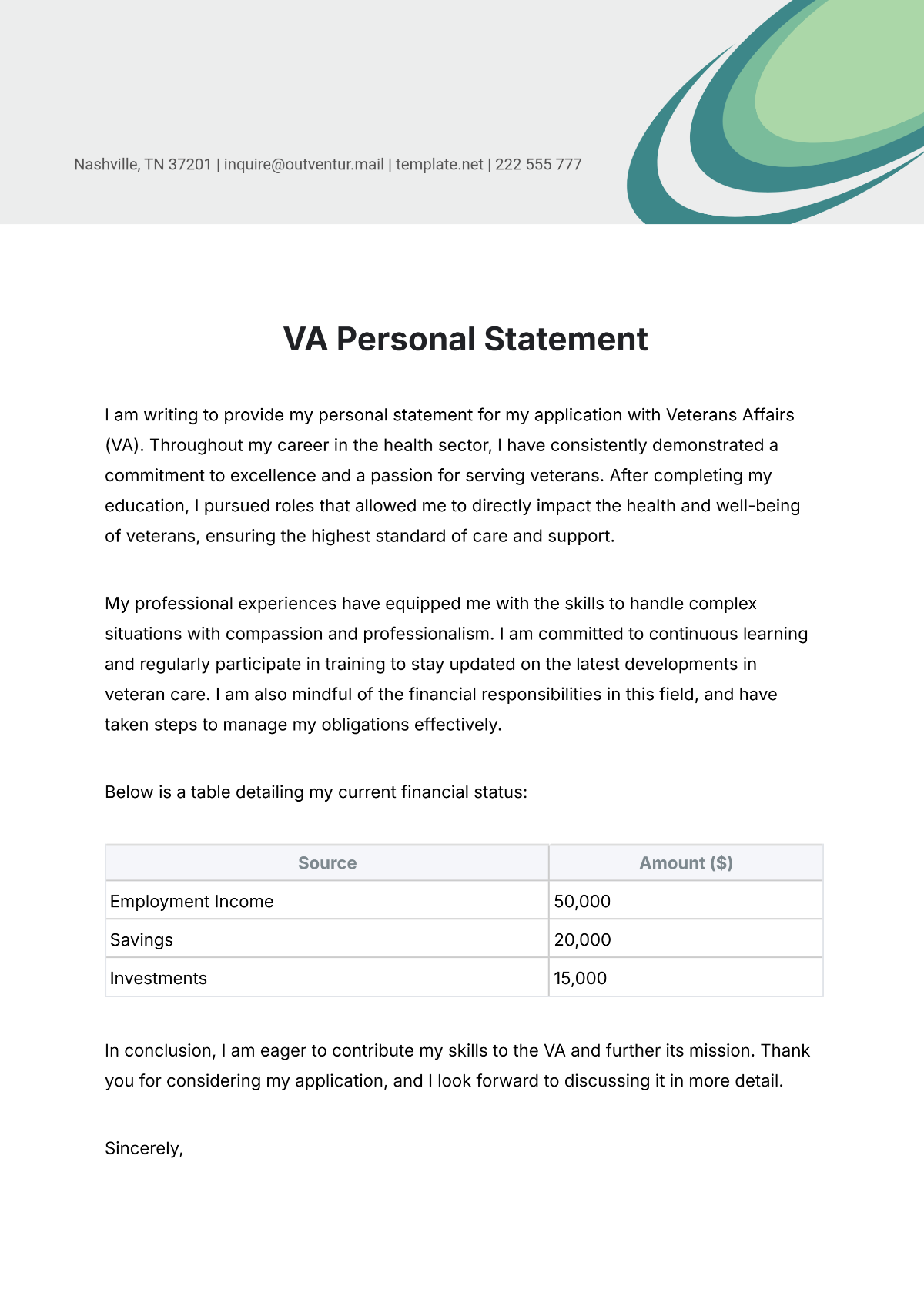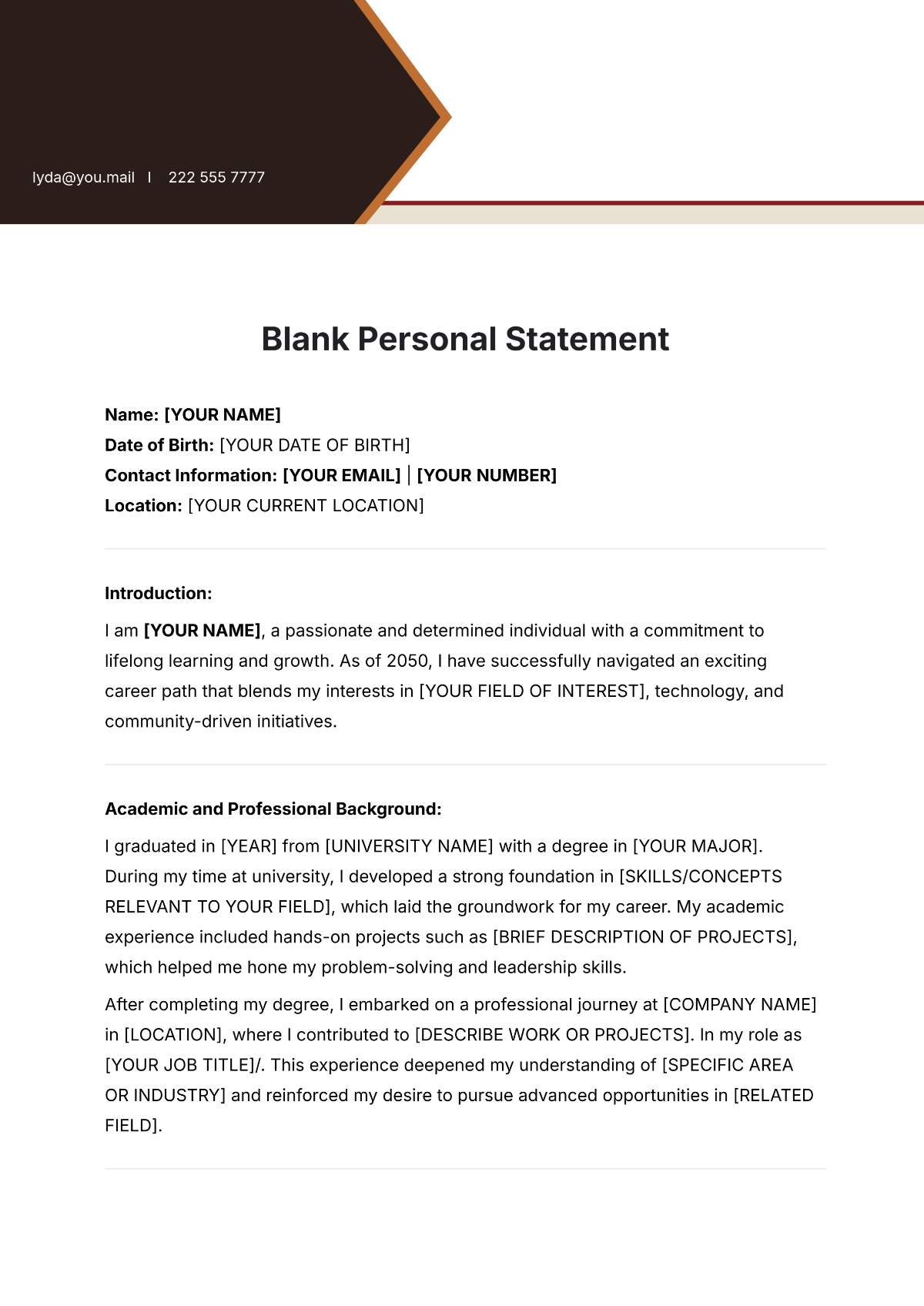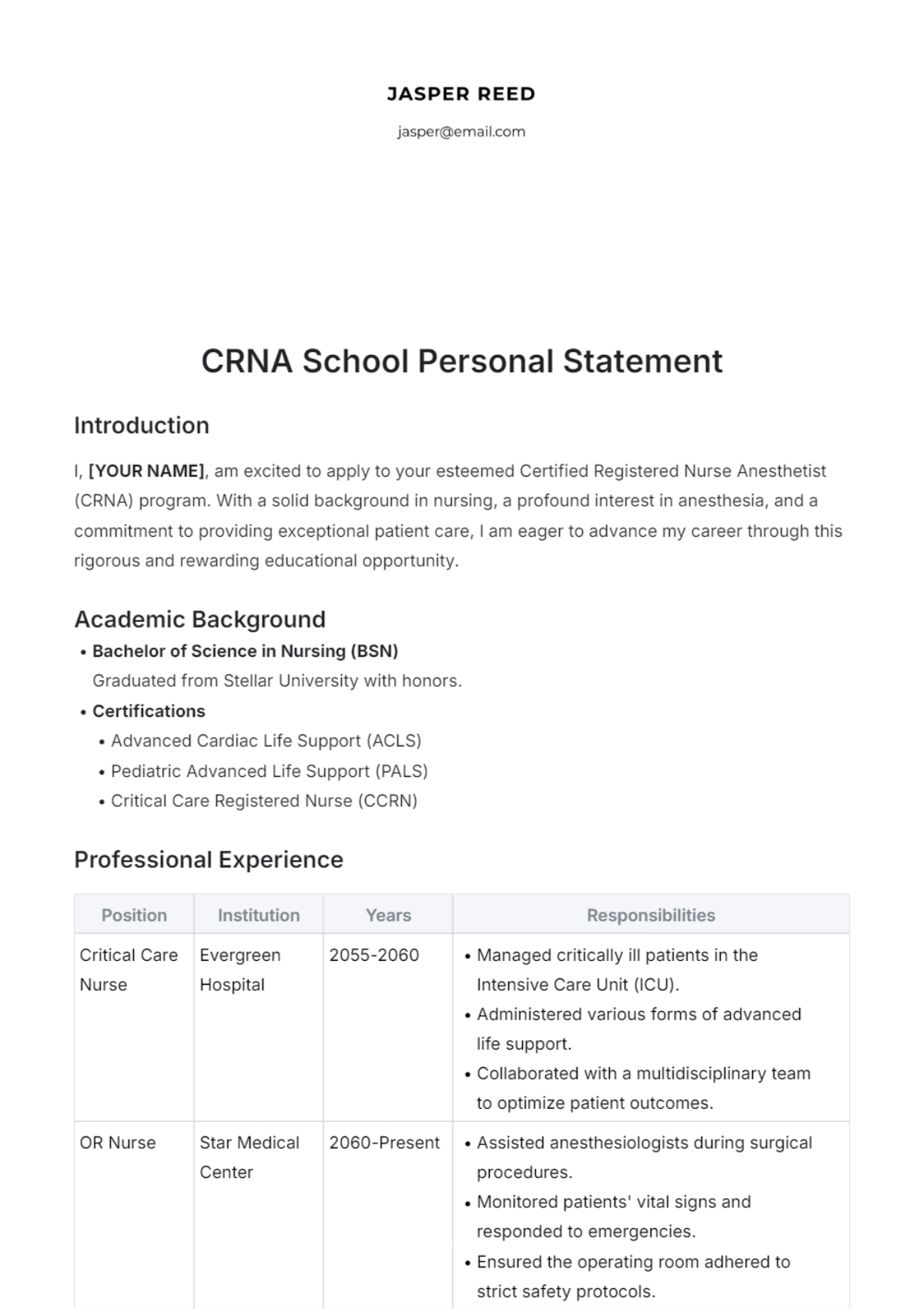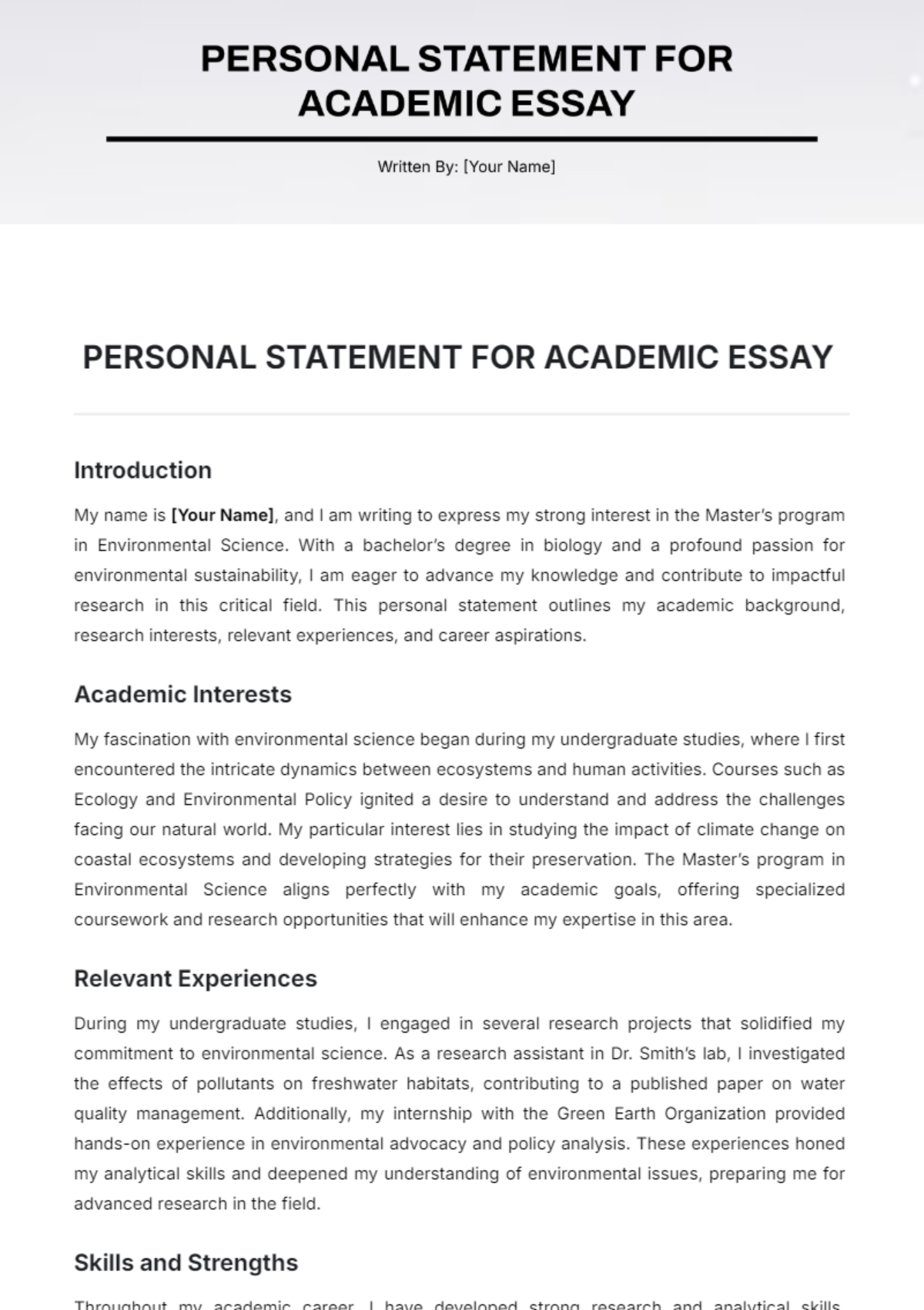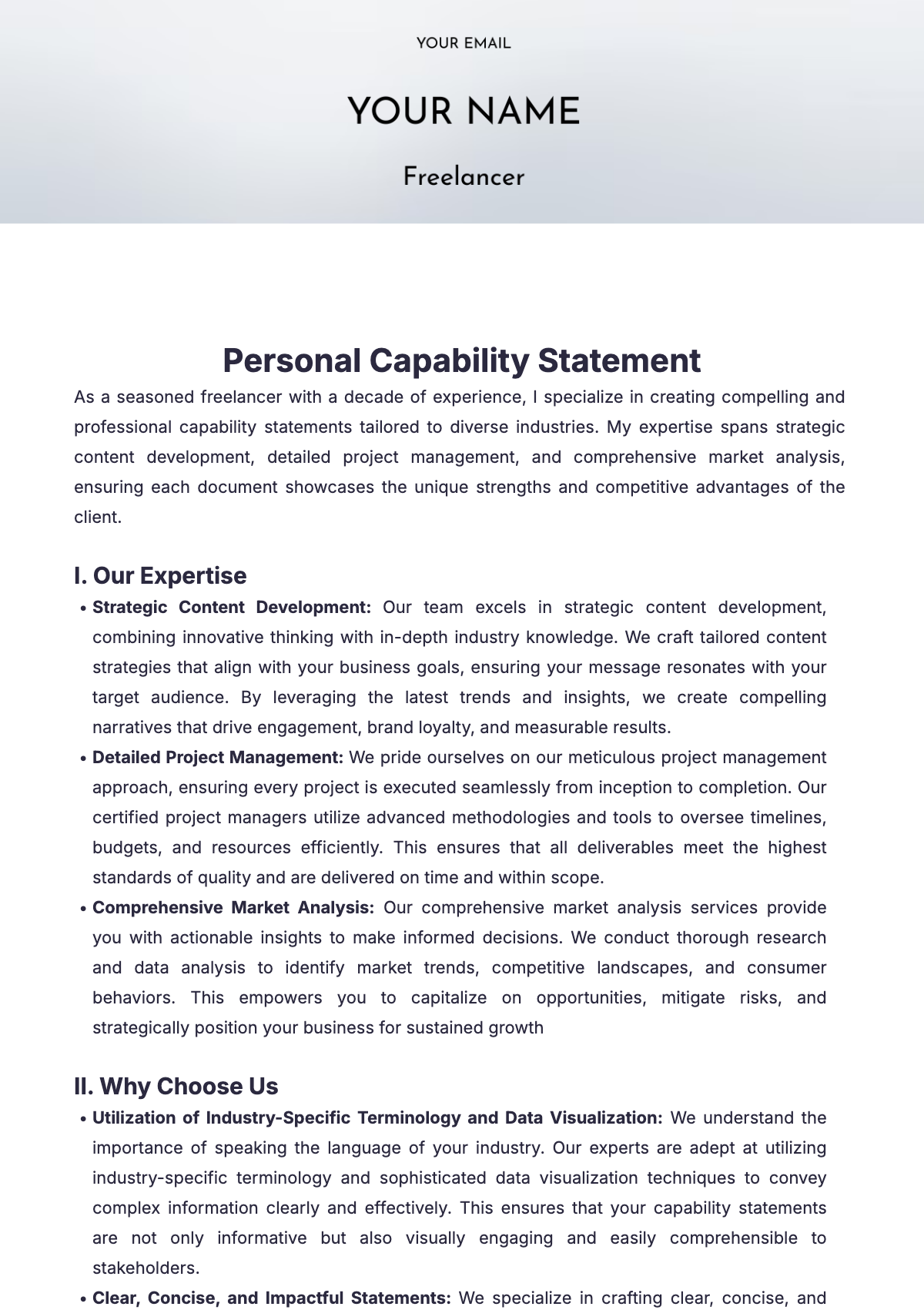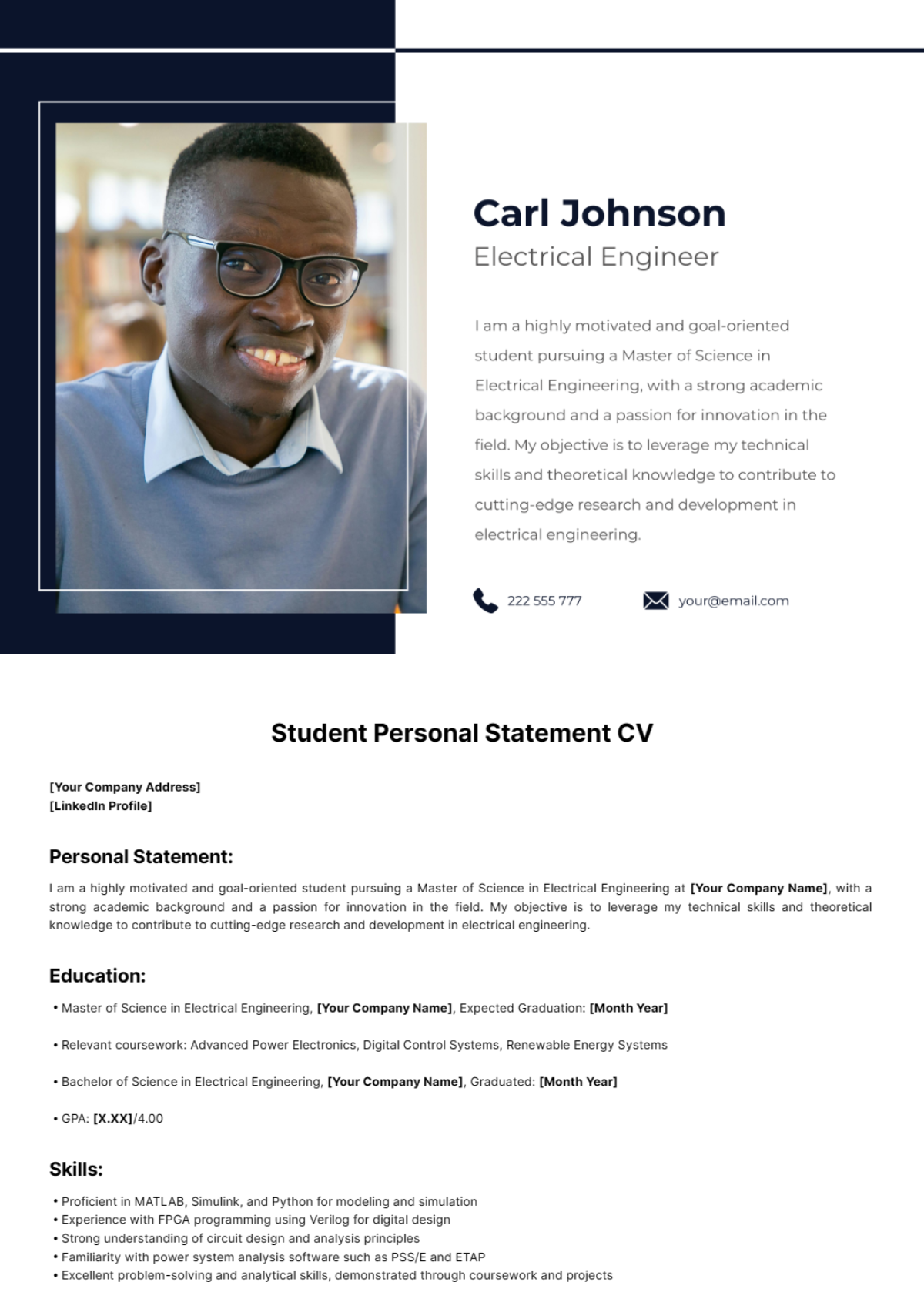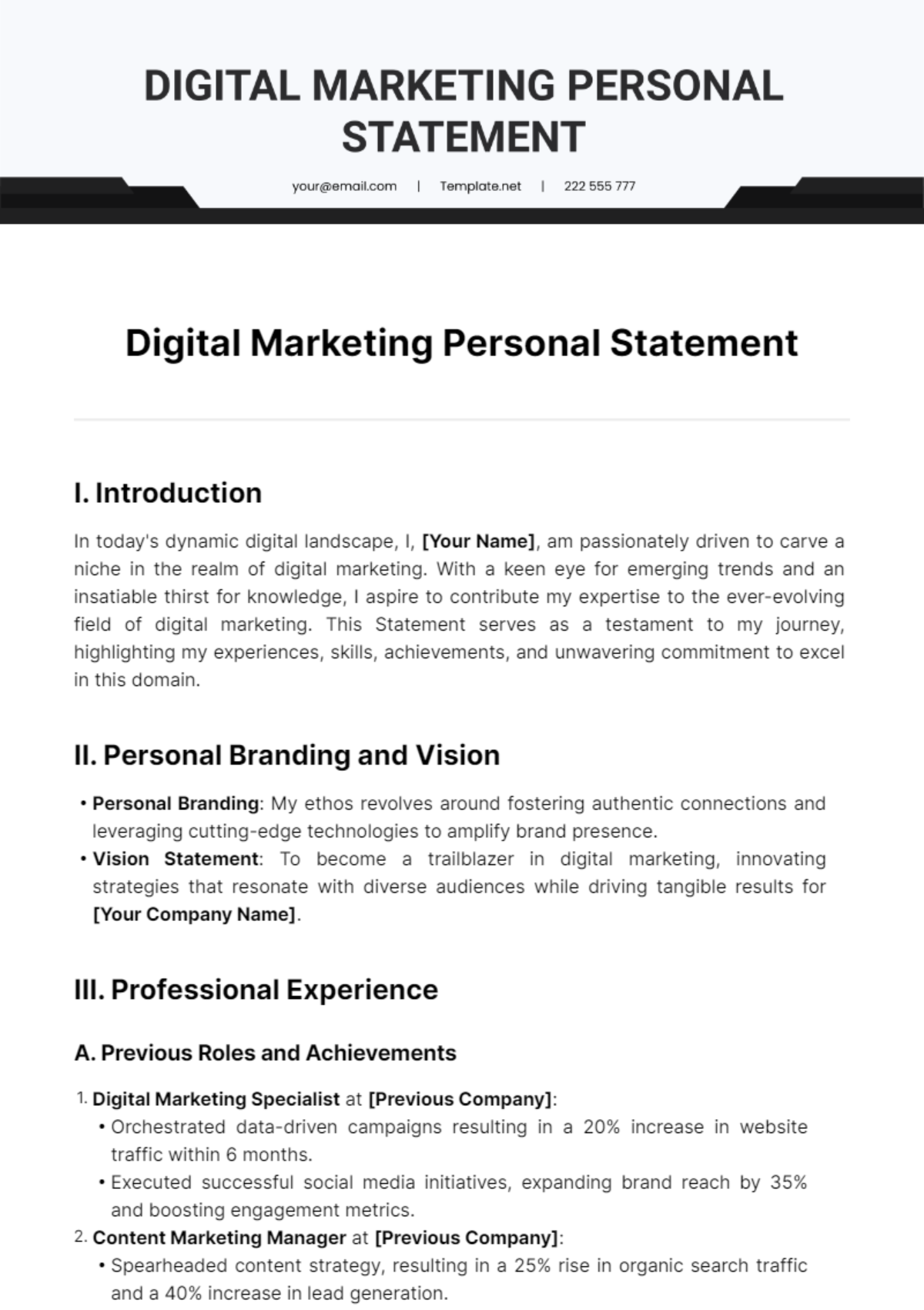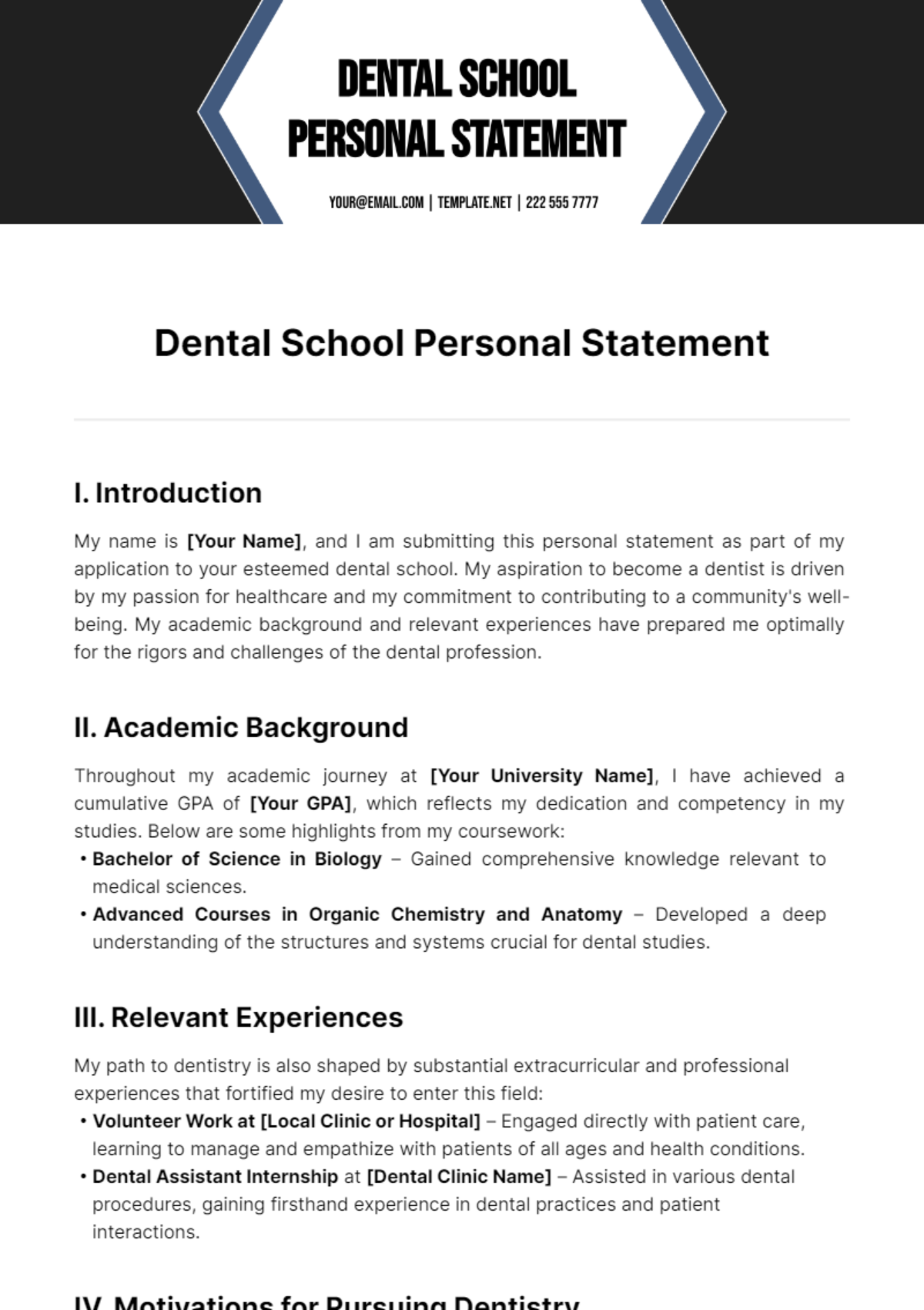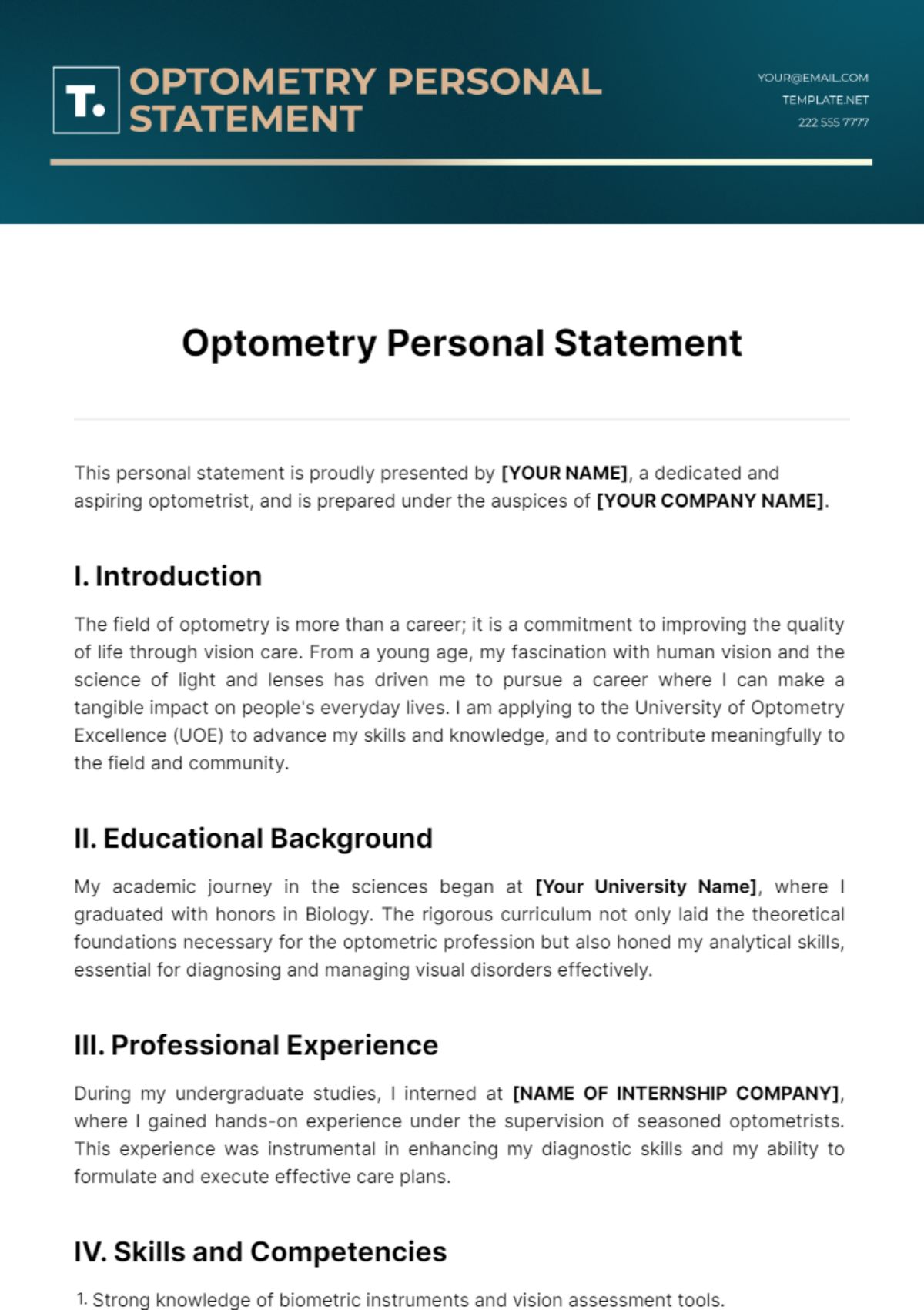Research Personal Statement
Prepared by: [Your Name] |
ADDRESS: [YOUR ADDRESS] |
CONTACT NUMBER: [YOUR PHONE NUMBER] |
EMAIL: [Your Email] |
I. Introduction
[Your Name], driven by an unquenchable thirst for knowledge and a ceaseless quest for understanding, is determined to explore the intricate and complex field of Neuroscience thoroughly. Possessing a passionate ambition to make a significant and valuable contribution toward the progression of Neuroscience, I am setting forth on a path characterized by extensive research, groundbreaking innovation, and rigorous academic investigation.
II. Academic Background and Expertise
A. Academic Achievements
Graduated with honors in Neurobiology from [Your University].
Received accolades for groundbreaking research in brain plasticity, showcasing dedication and excellence in Neuroscience.
B. Research Experience
Completed 10 research projects focusing on neural regeneration and repair.
Demonstrated proficiency in cutting-edge neuroimaging techniques through hands-on experience and scholarly inquiry.
III. Professional Experience
A. Industry Engagements
Served as a research scientist at [Previous Company Name], leading multidisciplinary teams in developing novel neuroimaging technologies.
Collaborated with industry partners to translate research findings into commercially viable products for diagnosing and treating neurological disorders.
B. Teaching and Mentorship
Taught undergraduate and graduate courses in Neuroscience, fostering a passion for research and critical thinking among students.
Mentored aspiring scientists and guided research methodologies, project management, and career development.
IV. Research Interests and Goals
A. Research Focus
Interested in exploring the neural mechanisms underlying memory formation and retrieval, aiming to uncover novel insights into cognitive processes.
Committed to addressing the impact of neurological disorders on brain function and behavior to advance knowledge and contribute to Neuroscience discourse.
B. Future Directions
Aspire to develop innovative therapeutic interventions for neurodegenerative diseases, fostering interdisciplinary collaboration and innovation.
Strive to publish impactful research findings in renowned academic journals and conferences, driving progress in the field of Neuroscience.
V. Methodological Approach
A. Methodologies
Employing advanced neuroimaging techniques, including functional MRI and EEG, to investigate neural correlates of memory processes.
Leveraging quantitative analysis methods such as machine learning algorithms to elucidate complex patterns in brain data.
B. Tools and Resources
Utilizing state-of-the-art neuroimaging facilities and computational resources to facilitate data collection and analysis.
Collaborating with leading experts in Neuroscience and accessing cutting-edge research tools to enhance research capabilities.
VI. Impact and Contribution
A. Societal Impact
Envisioning research outcomes that contribute to the development of novel therapies for Alzheimer's disease and other neurodegenerative disorders.
Advocating for the translation of research findings into clinical practice to improve the quality of life for individuals affected by neurological conditions.
B. Knowledge Dissemination
Committed to sharing research insights through peer-reviewed publications, conference presentations, and public lectures.
Engaging with policymakers, healthcare professionals, and patient advocacy groups to foster dialogue and promote evidence-based approaches to neurological care.
VII. Conclusion
[Your Name] continues to be unwaveringly dedicated to achieving excellence, fueled by a deep and enduring passion for exploration and innovation. With a steadfast commitment to academic thoroughness and intellectual rigor, I am well-prepared to provide significant insights and advancements within the dynamic field of Neuroscience.
